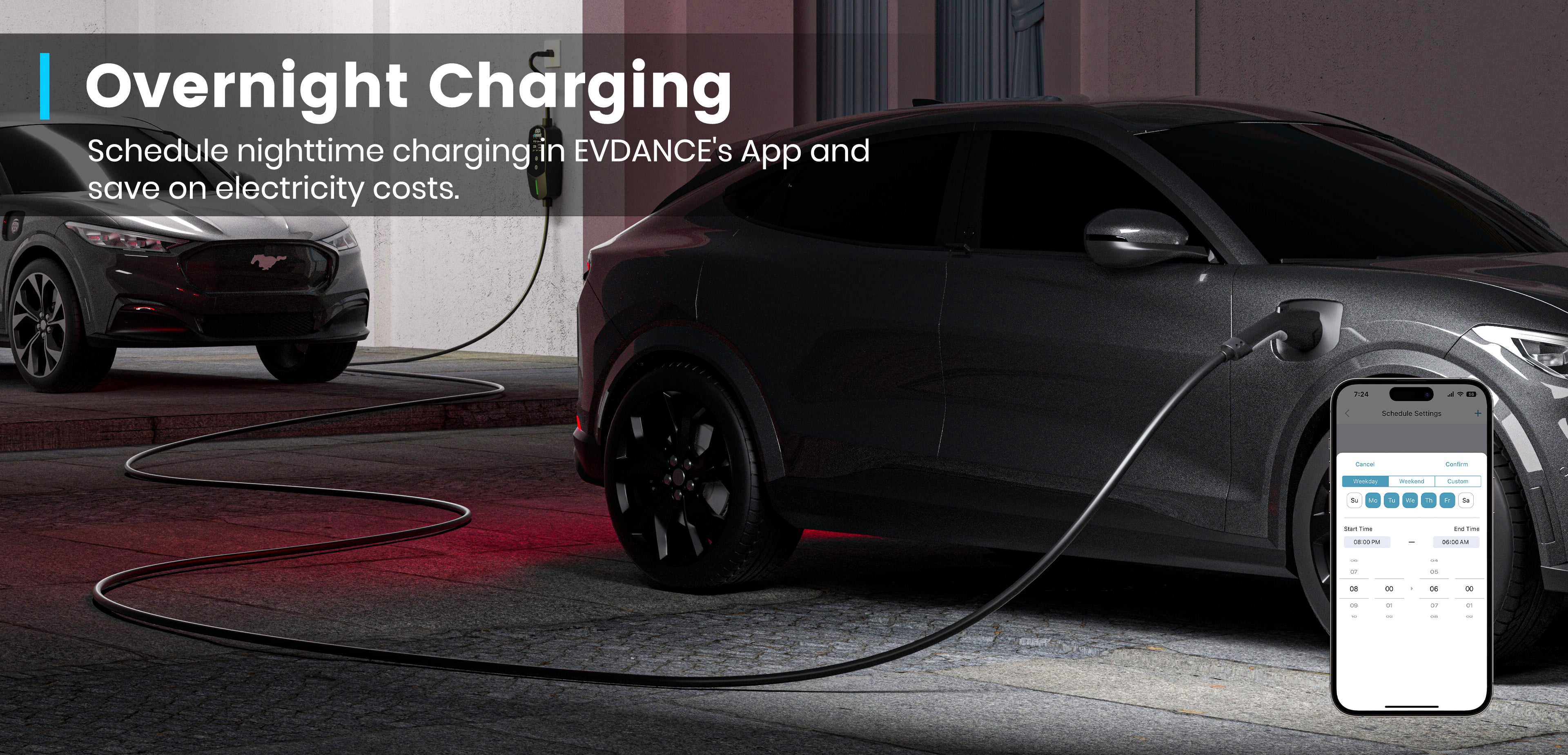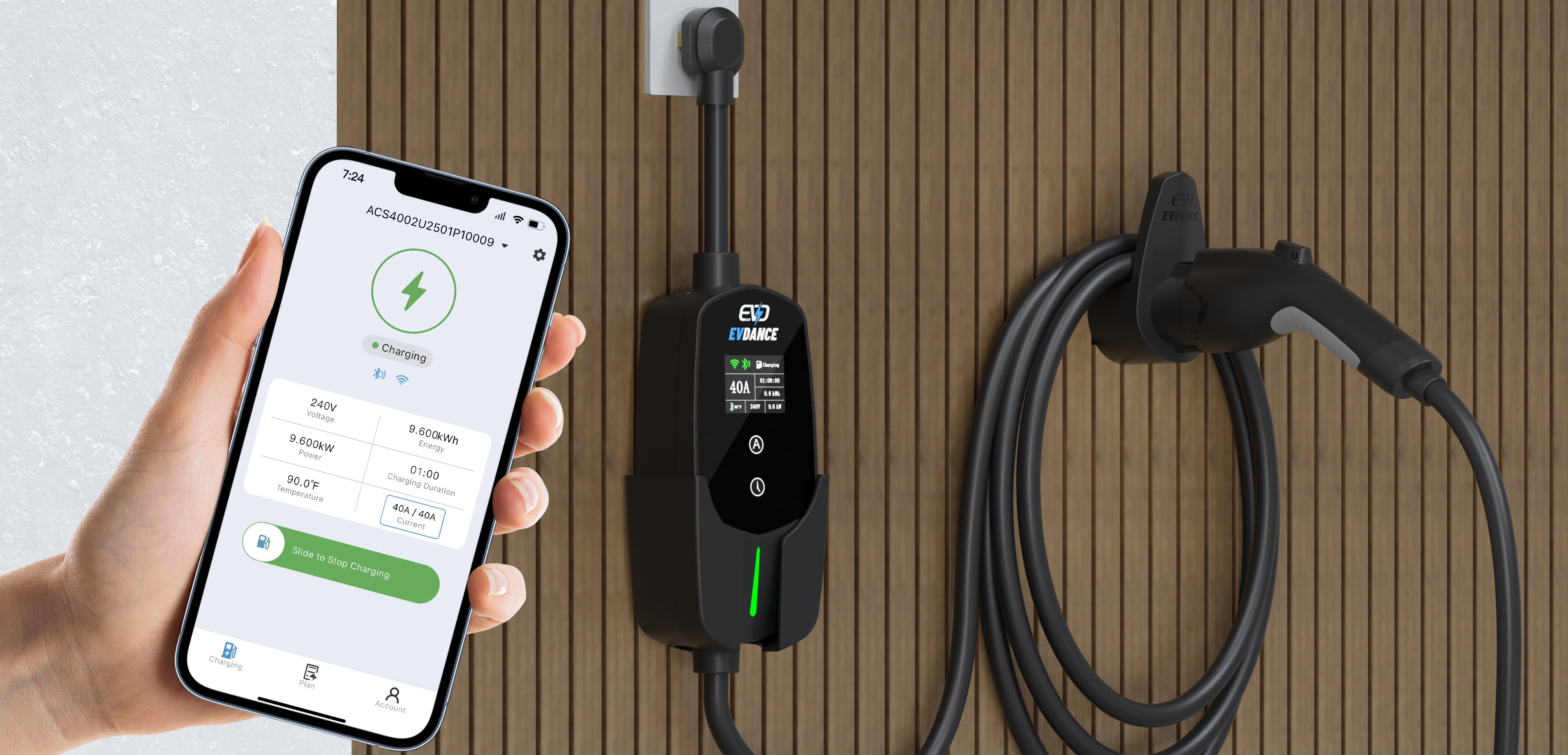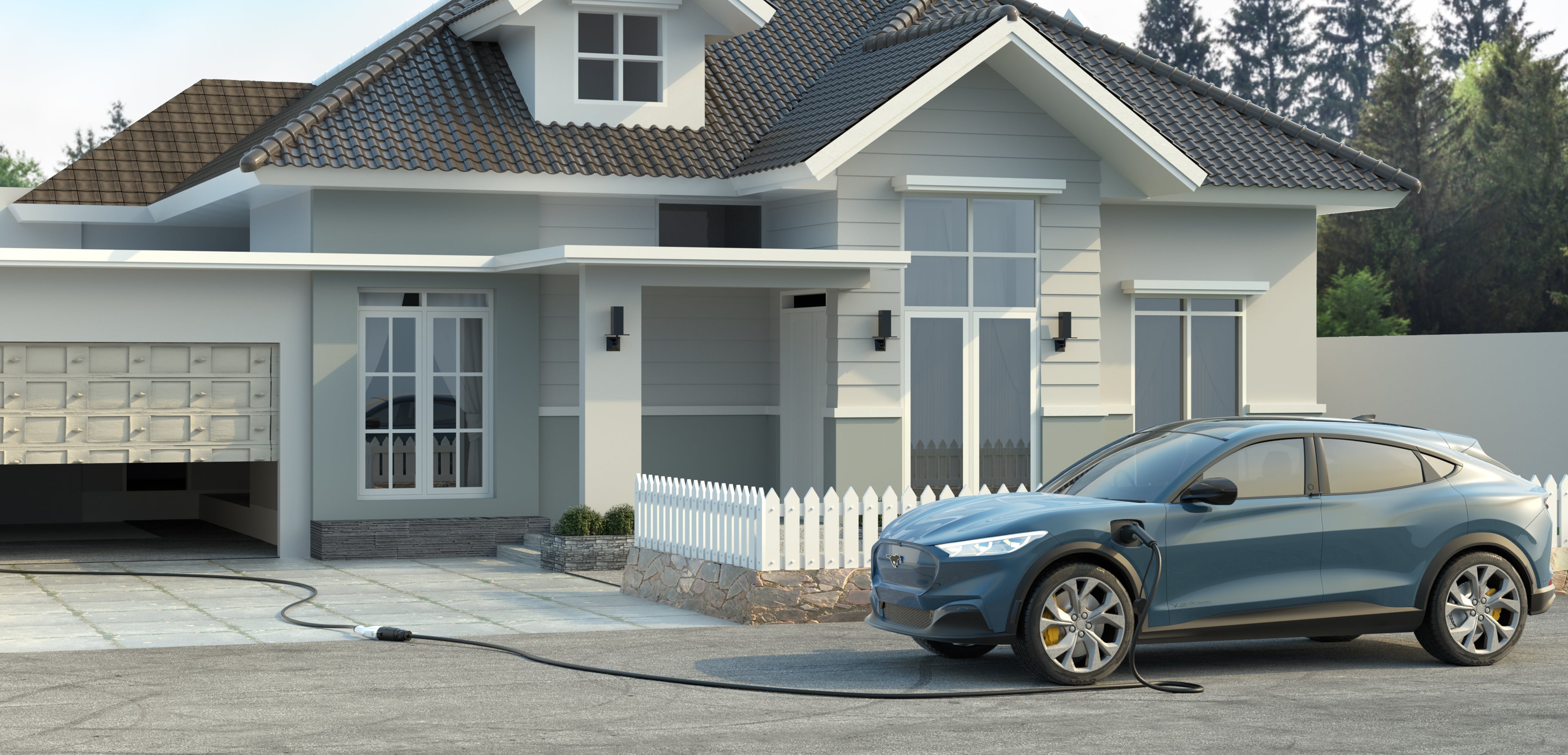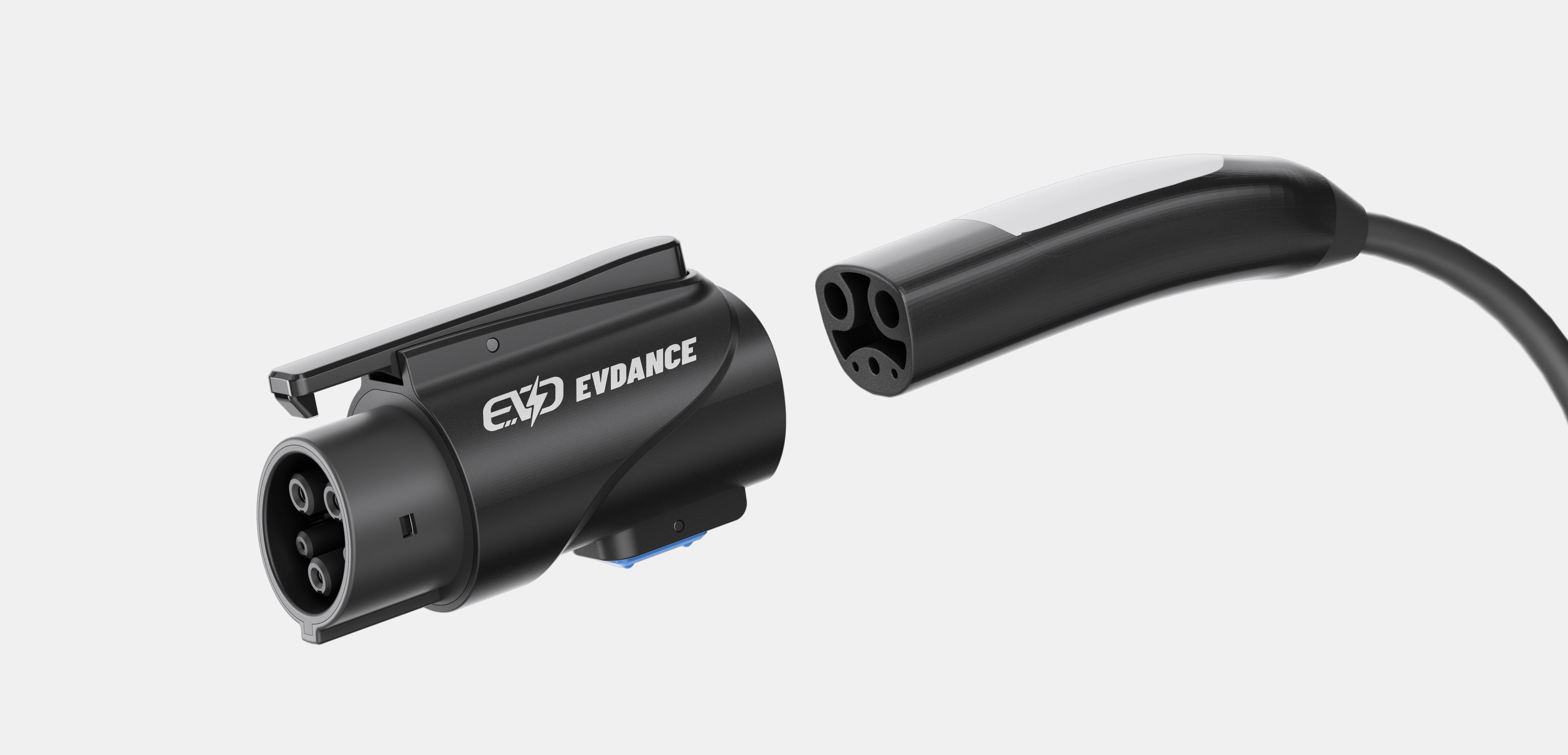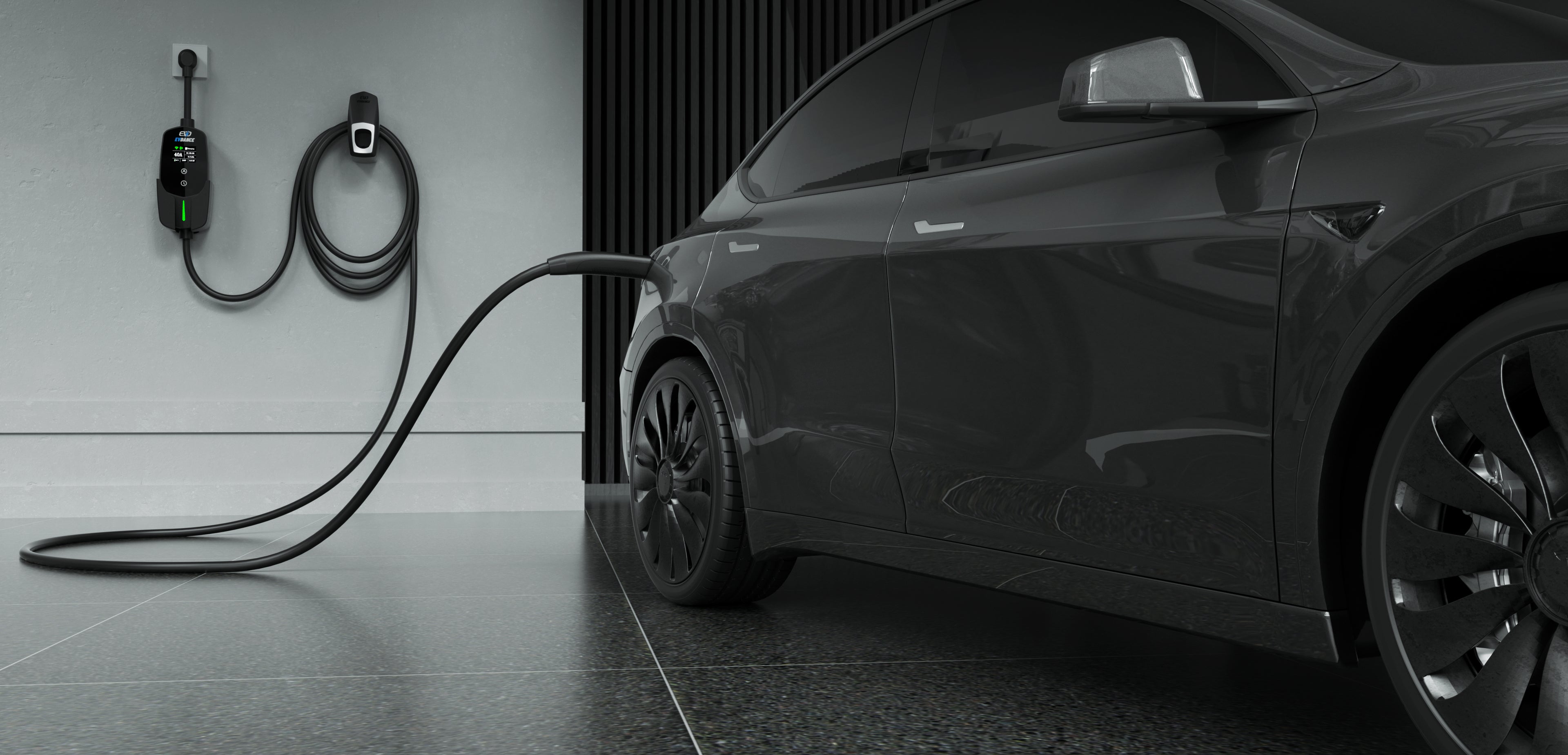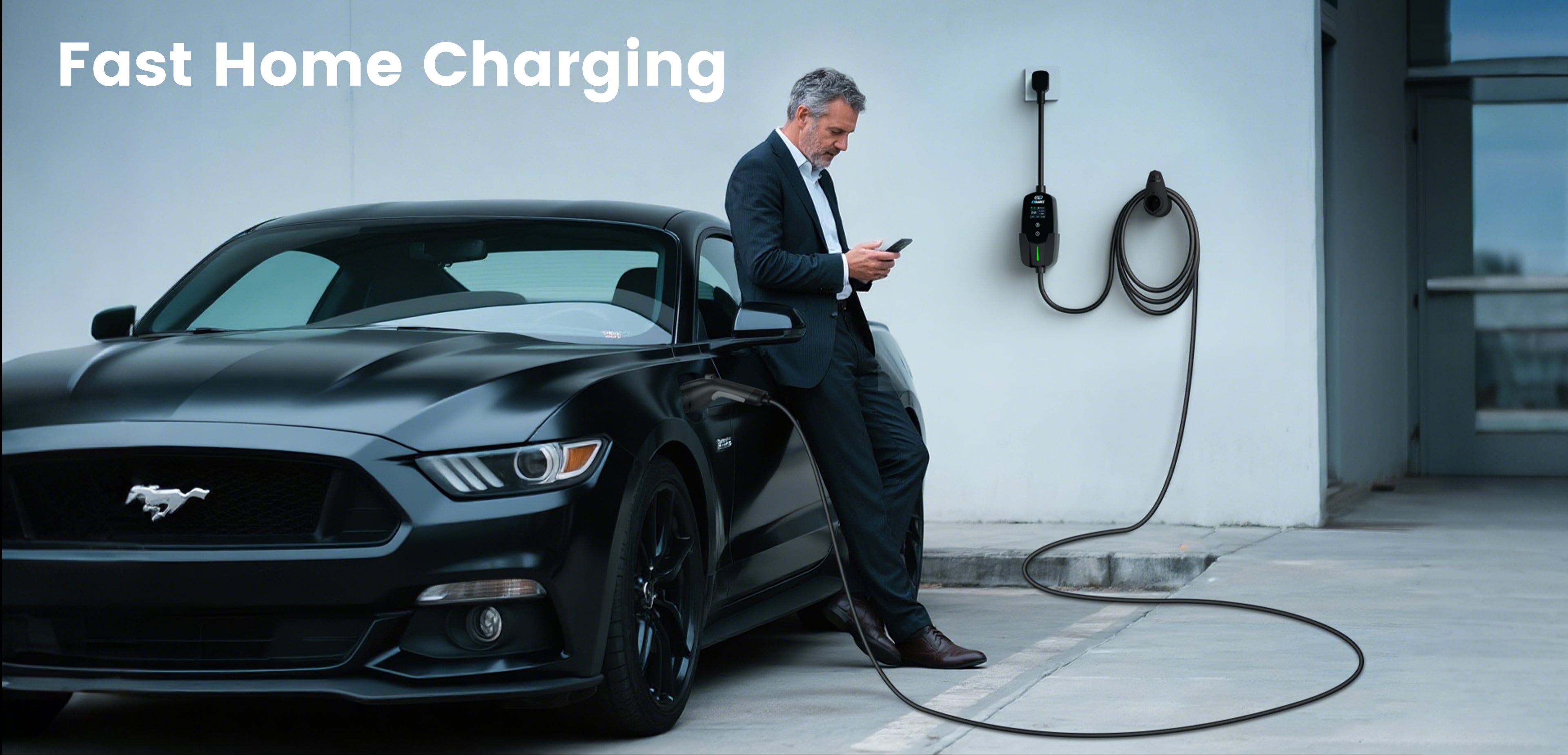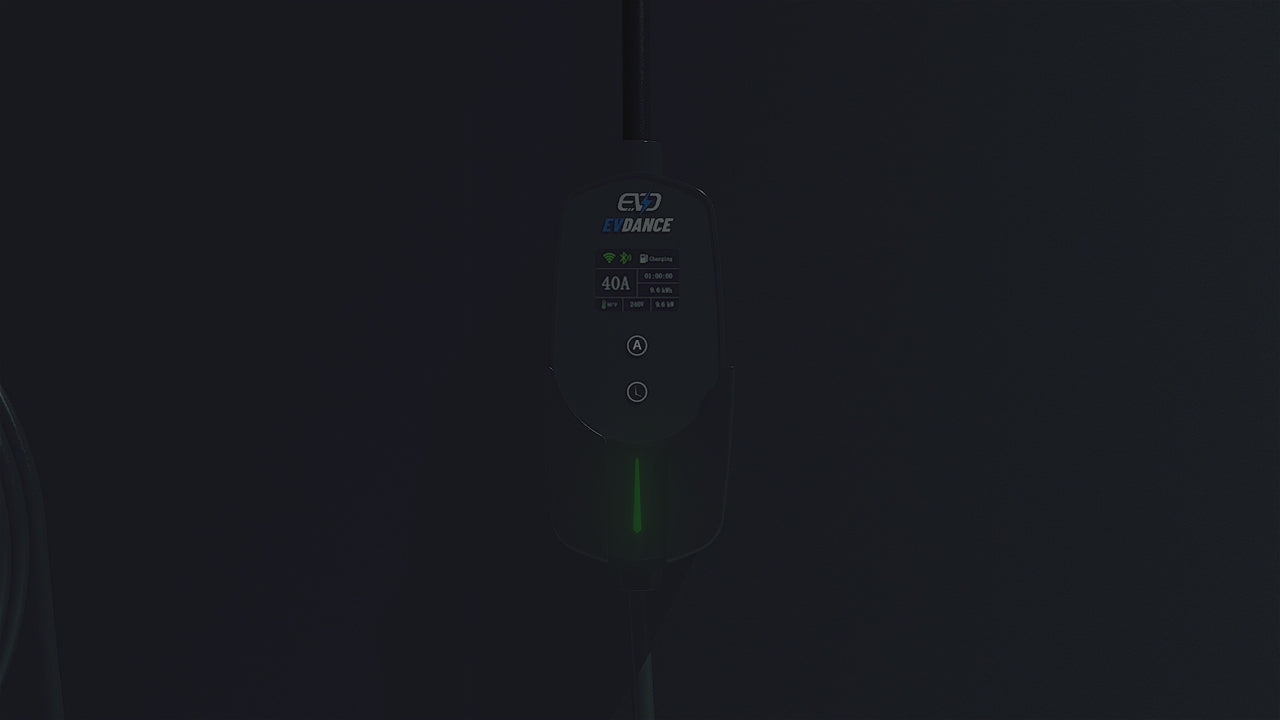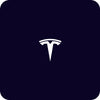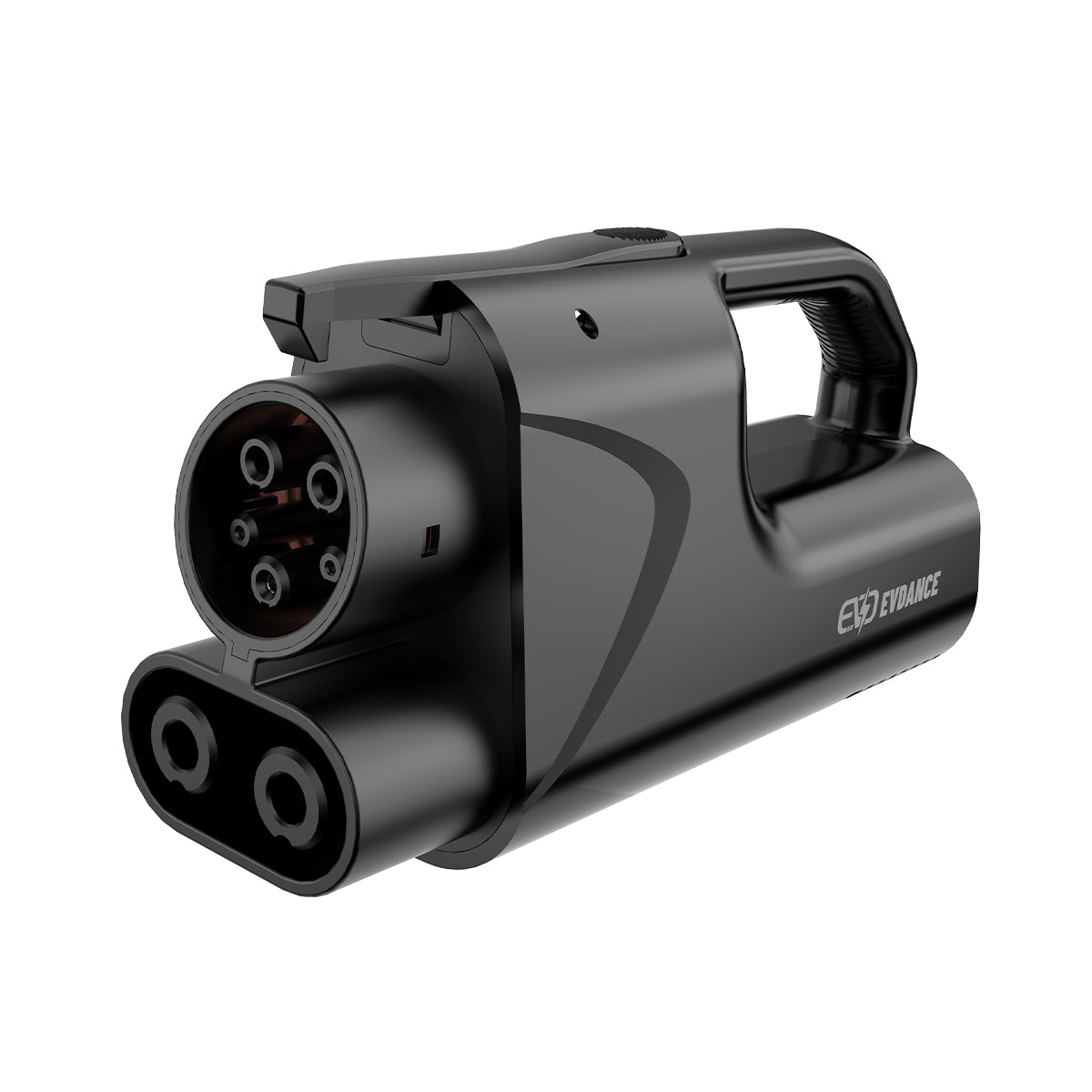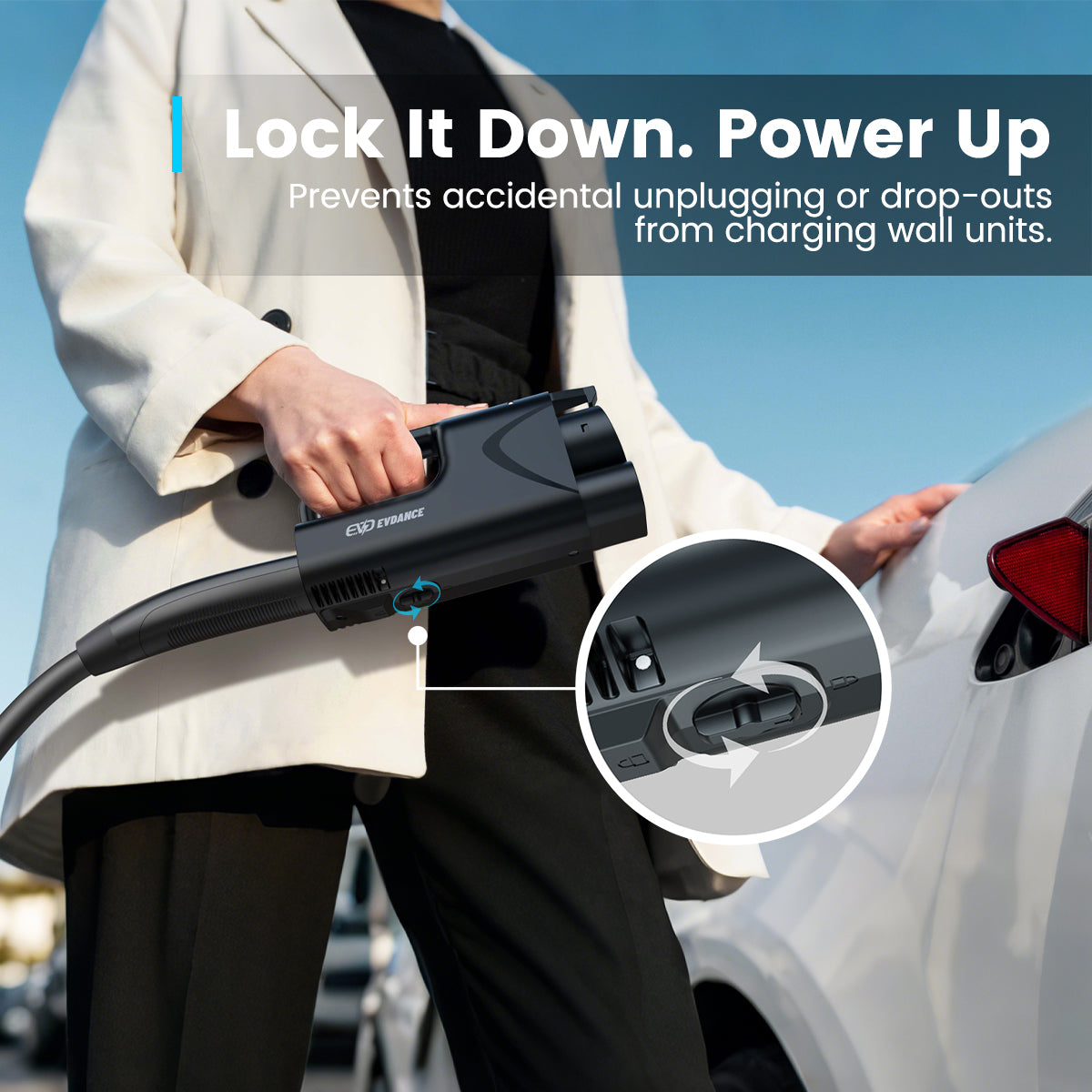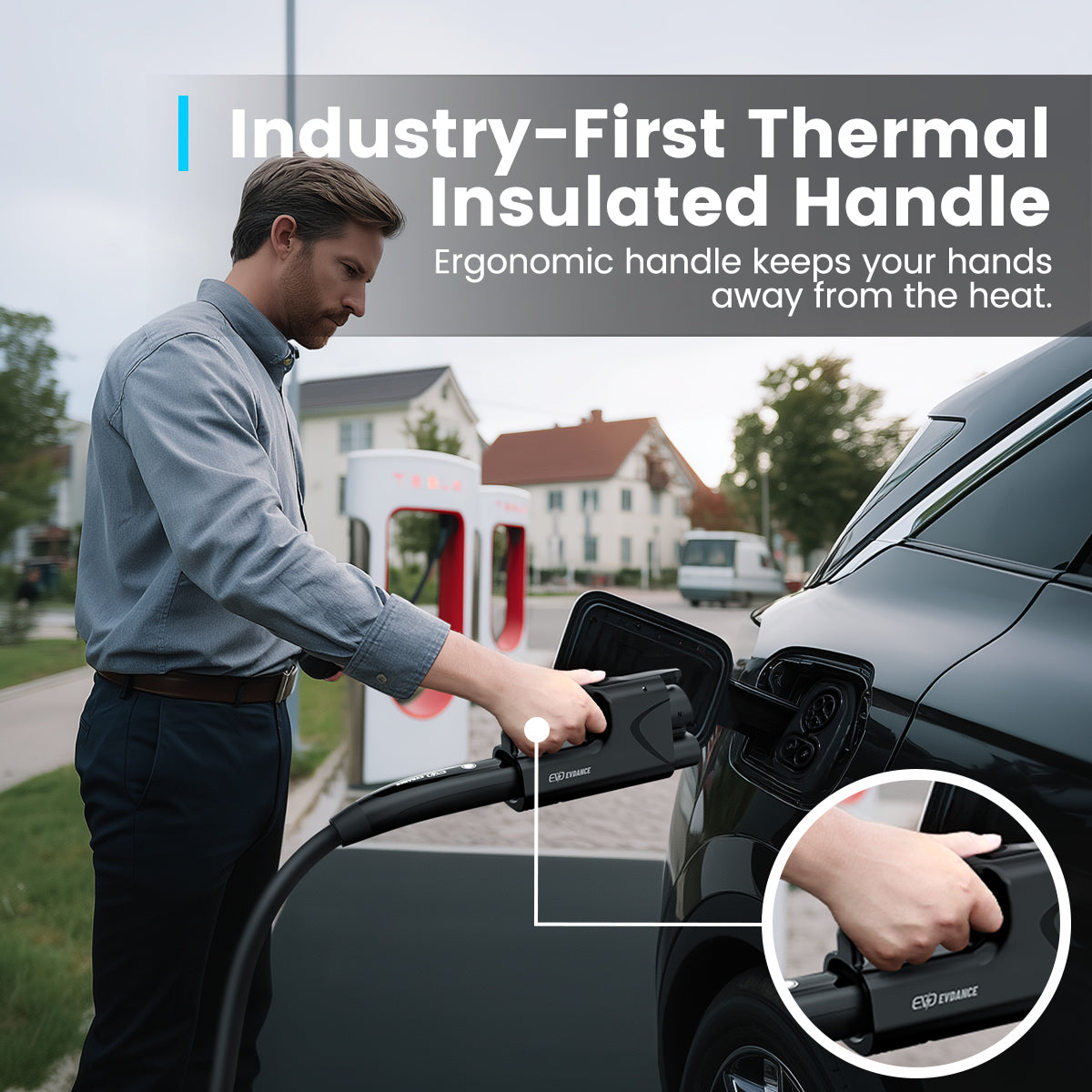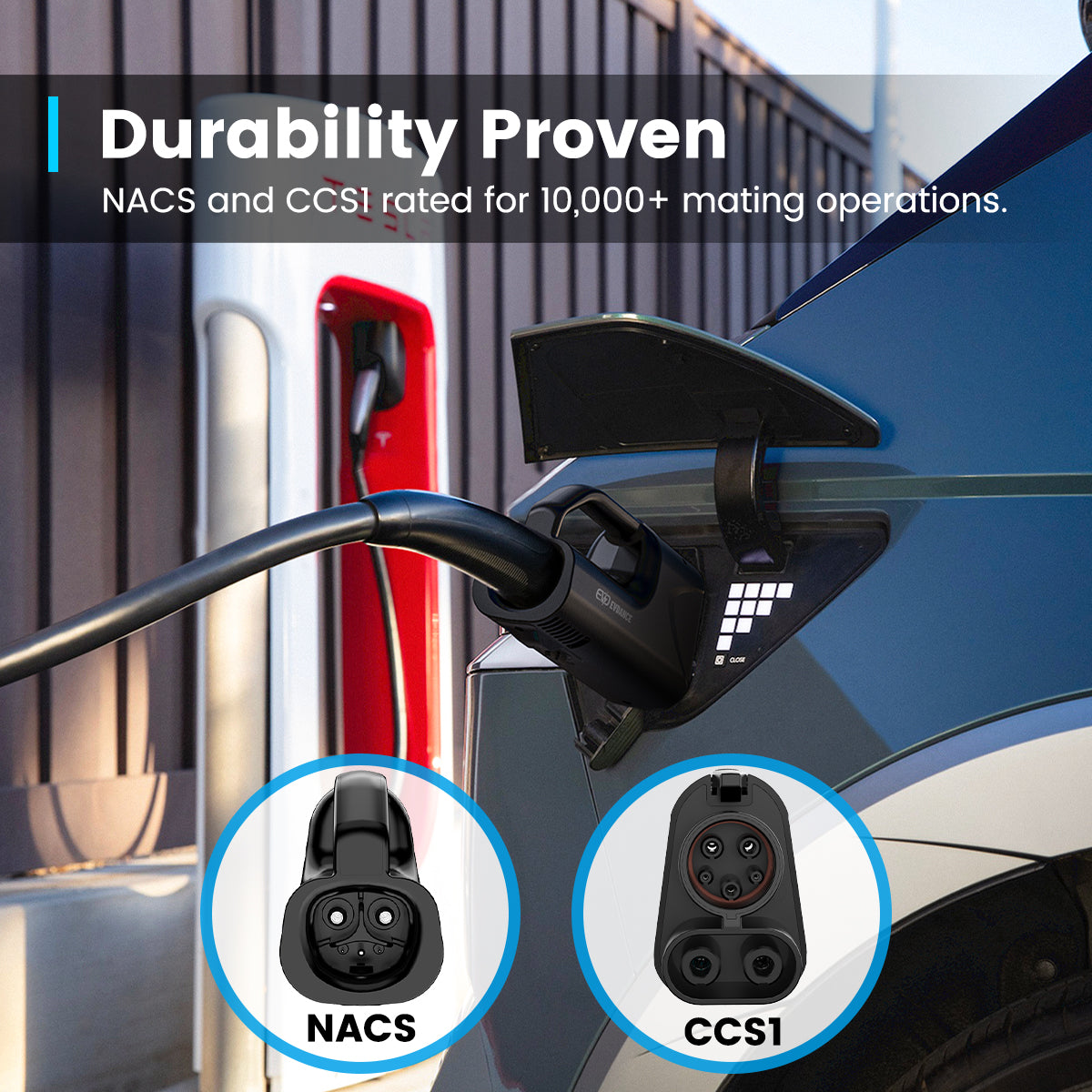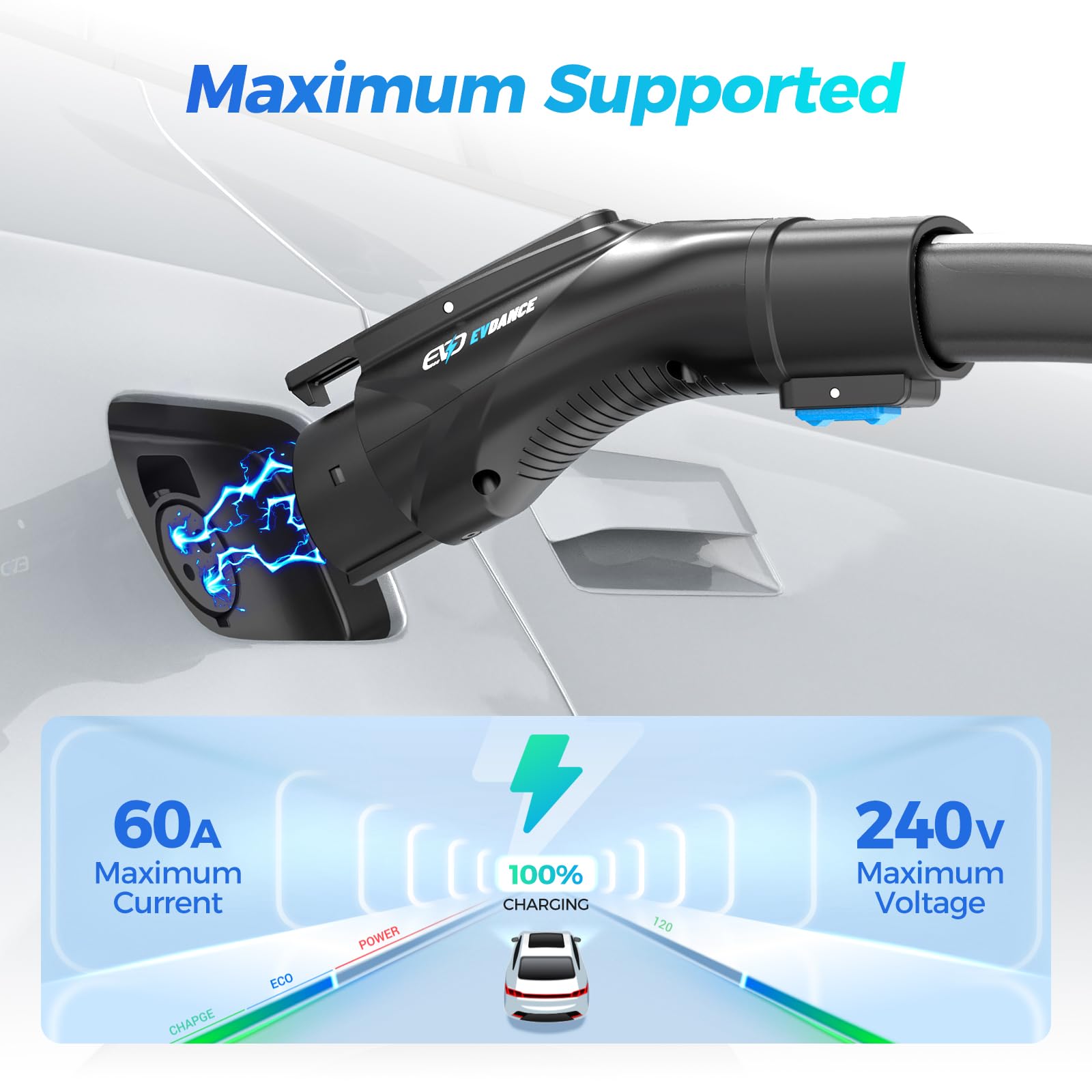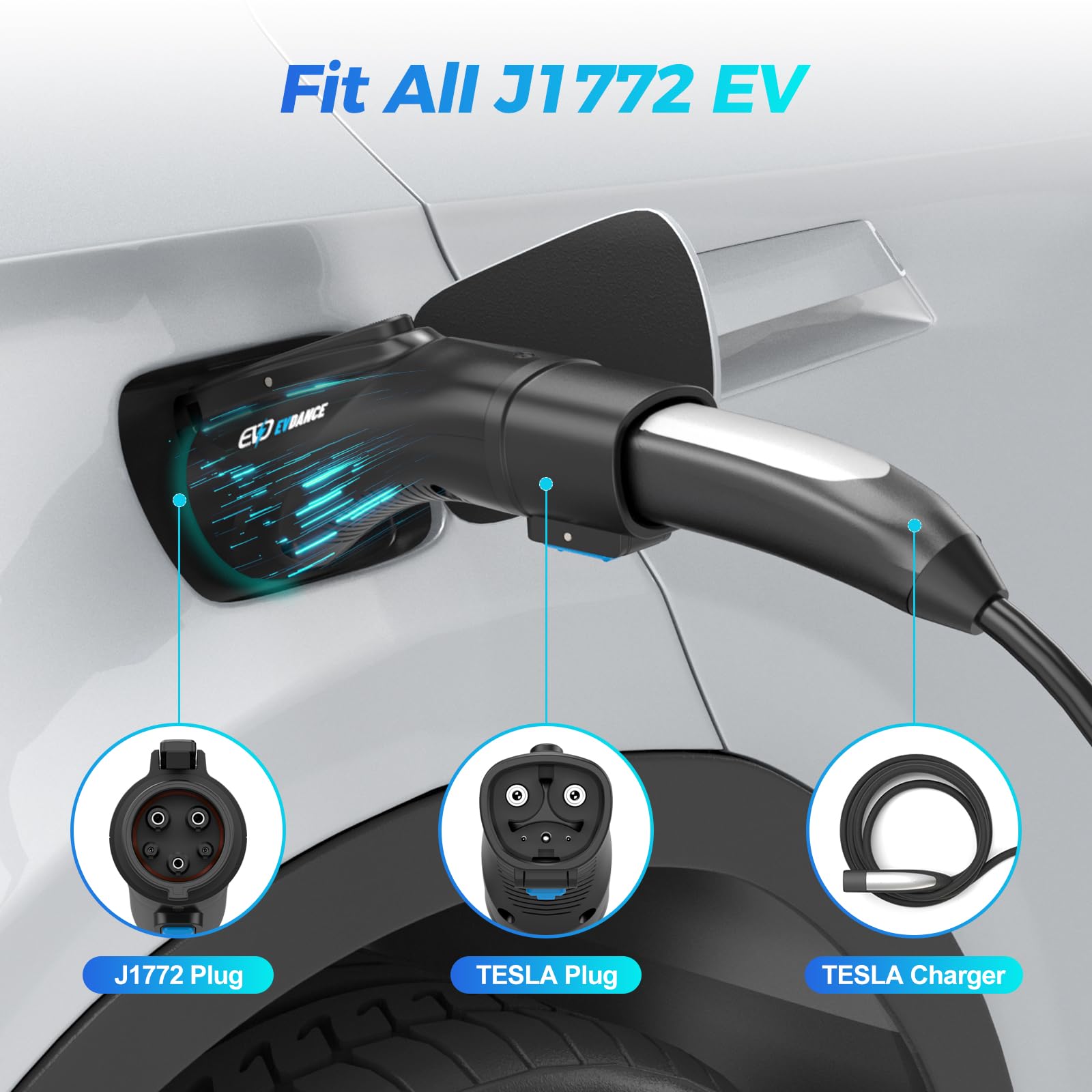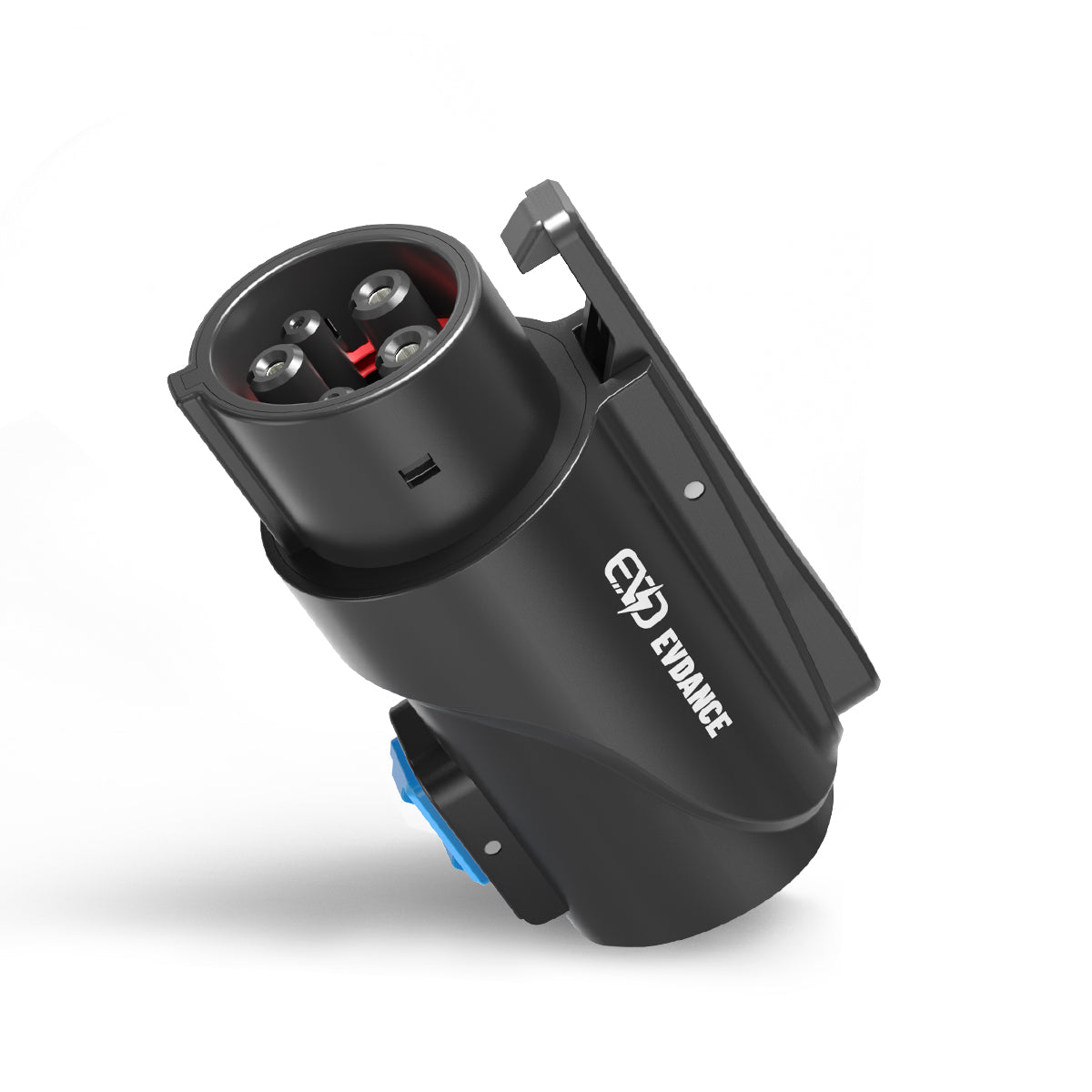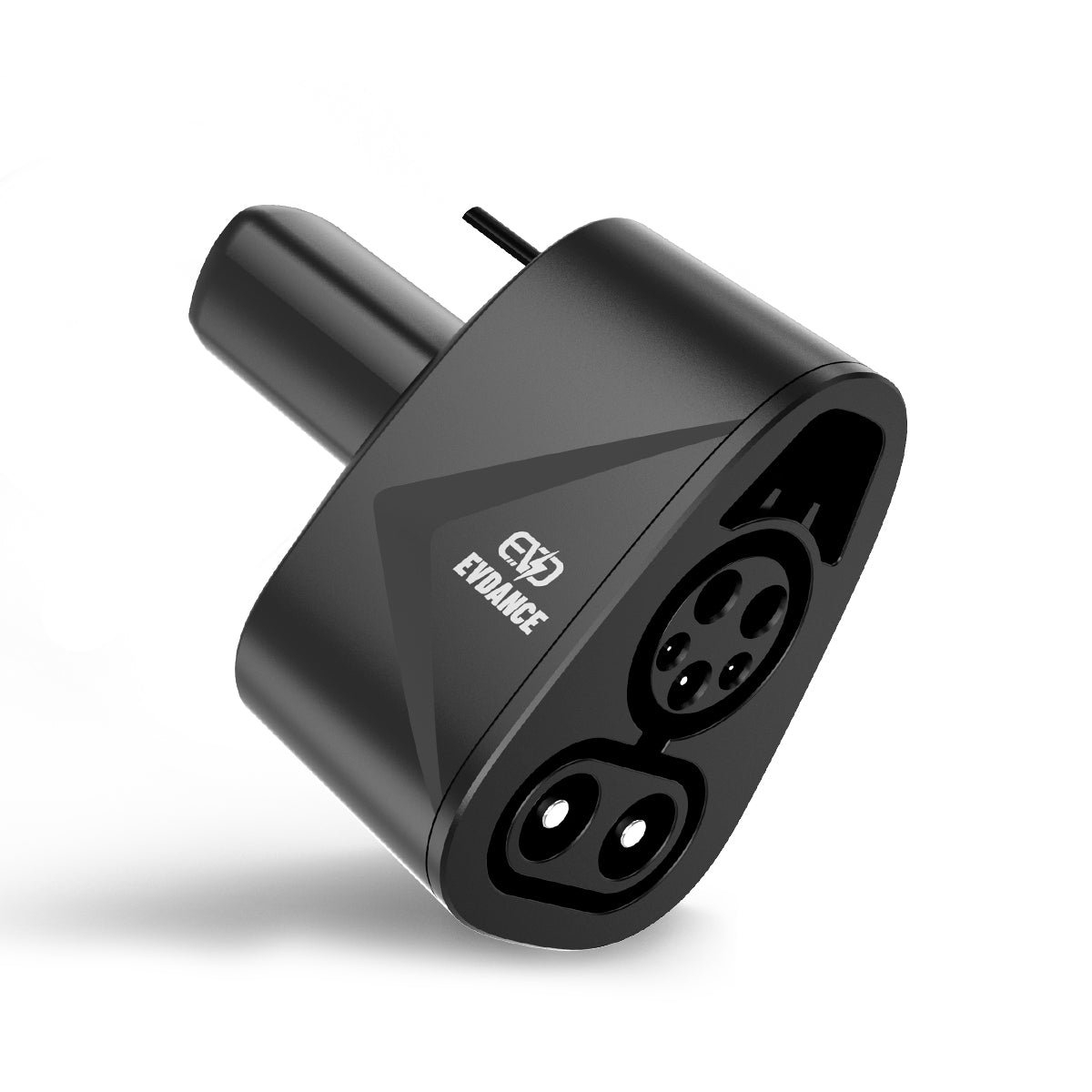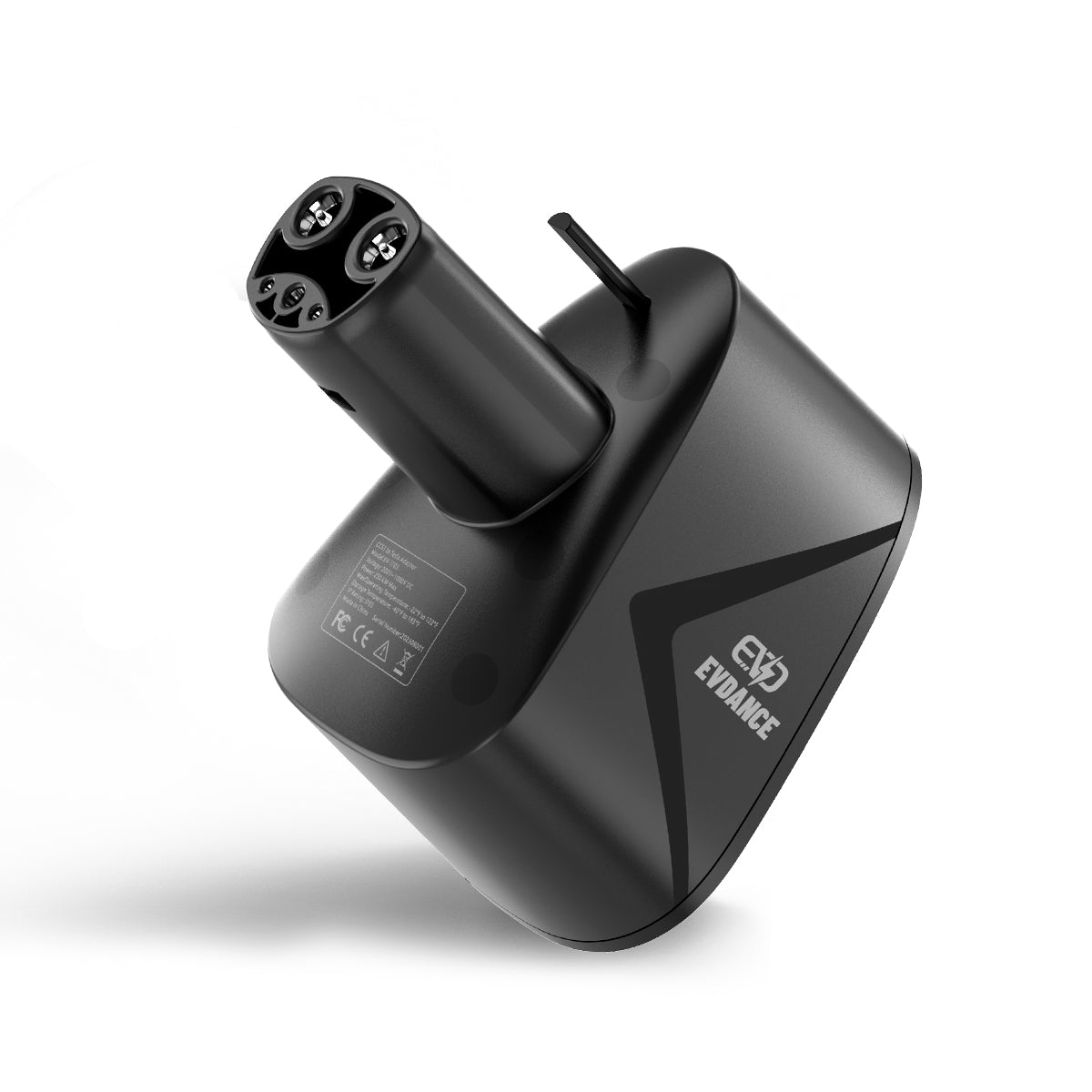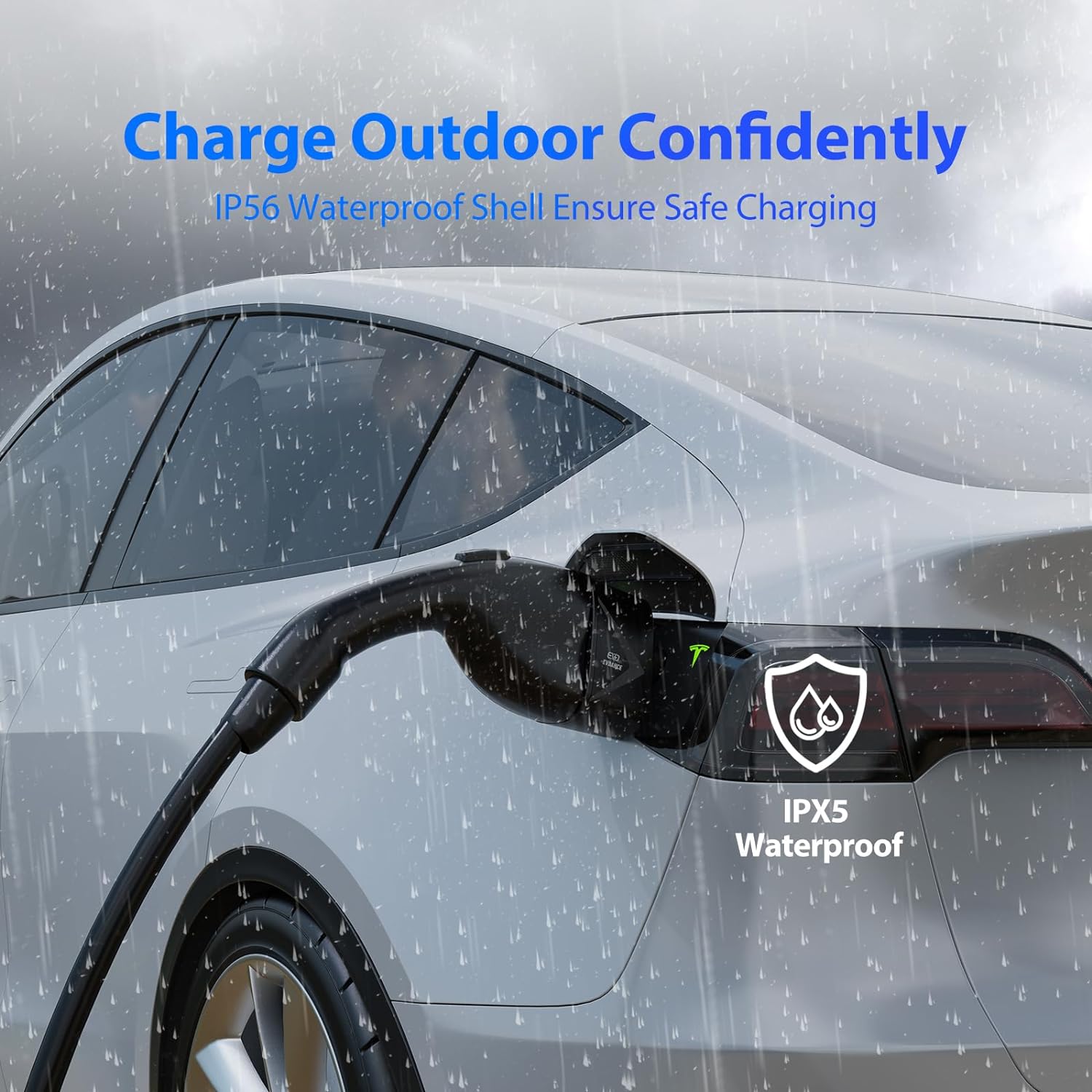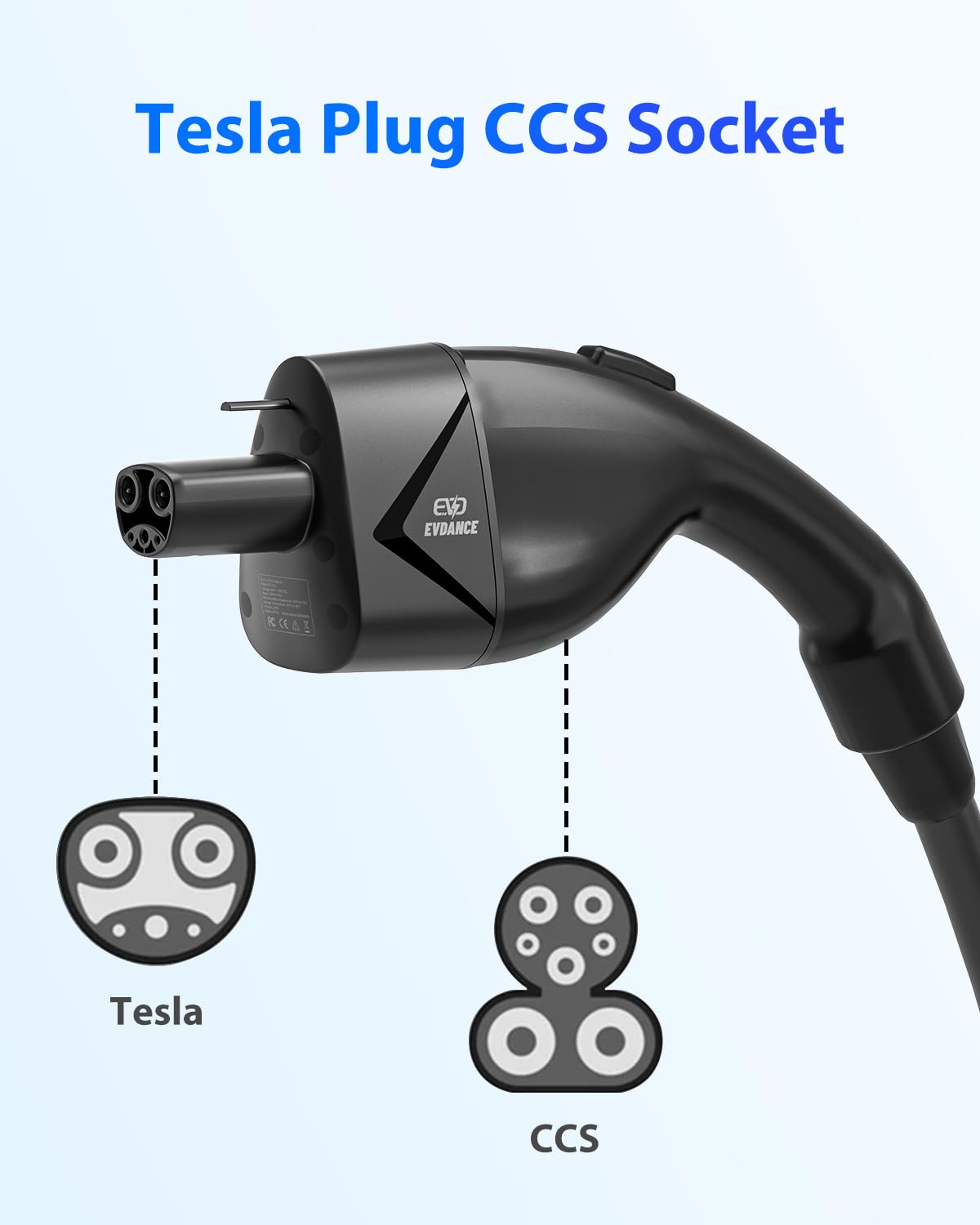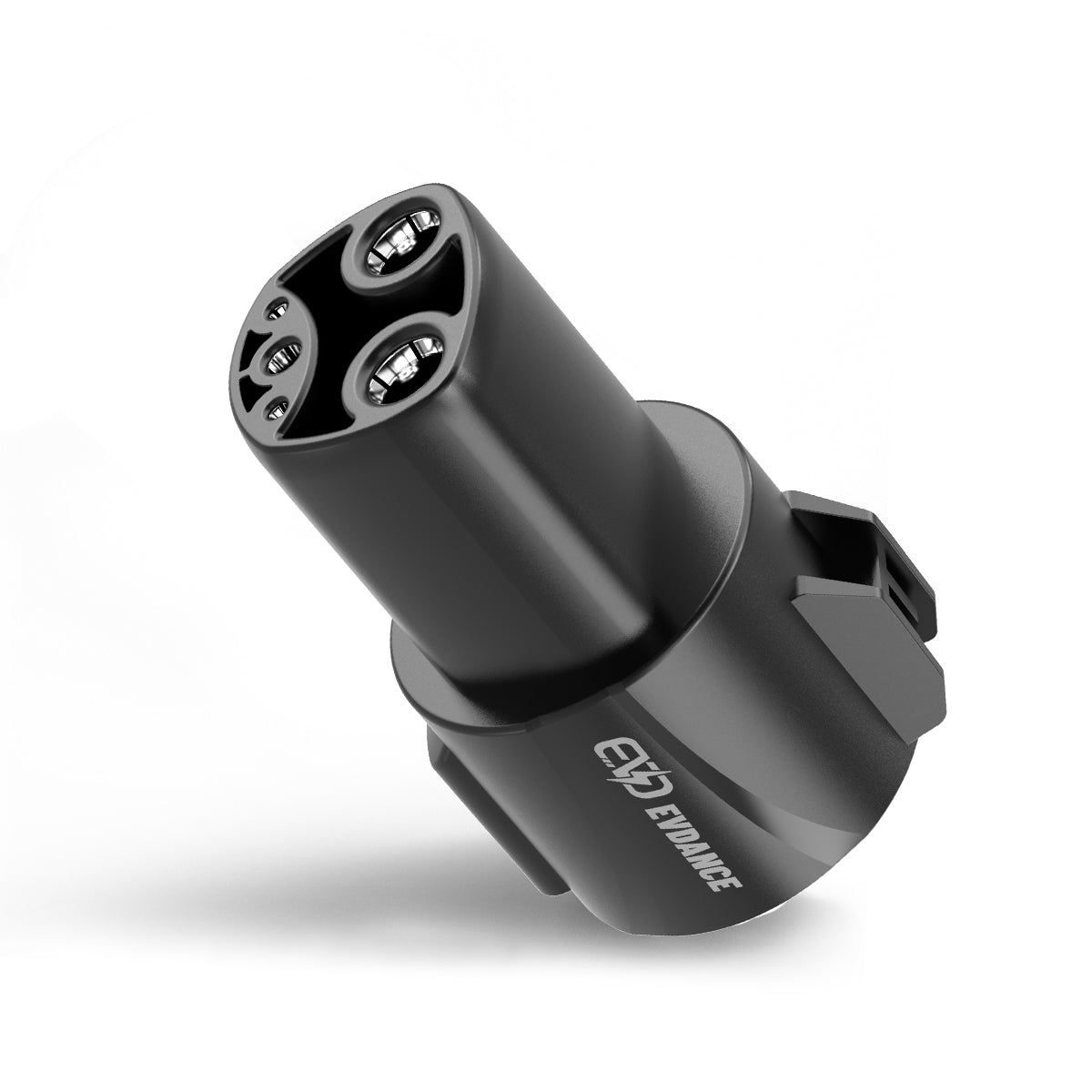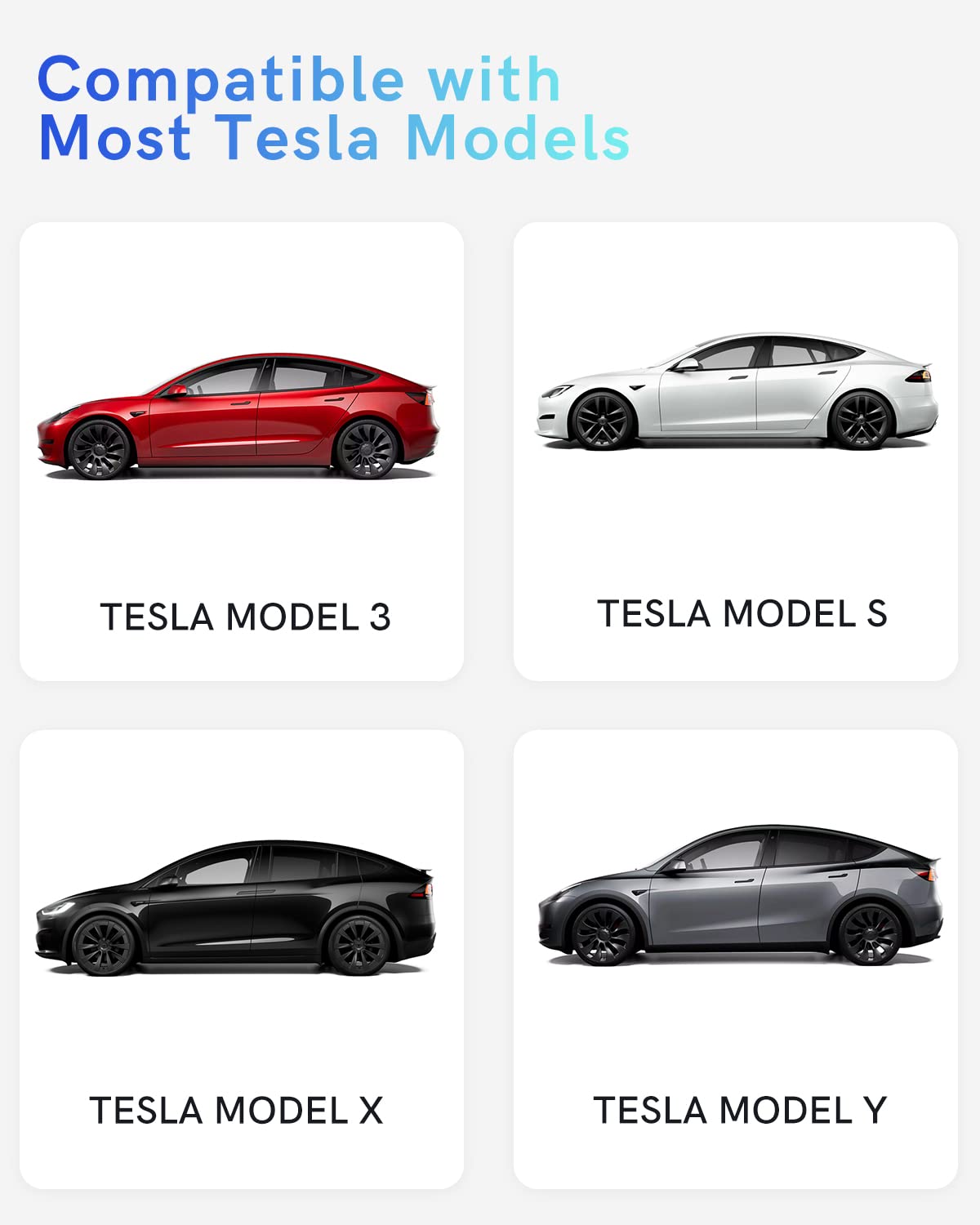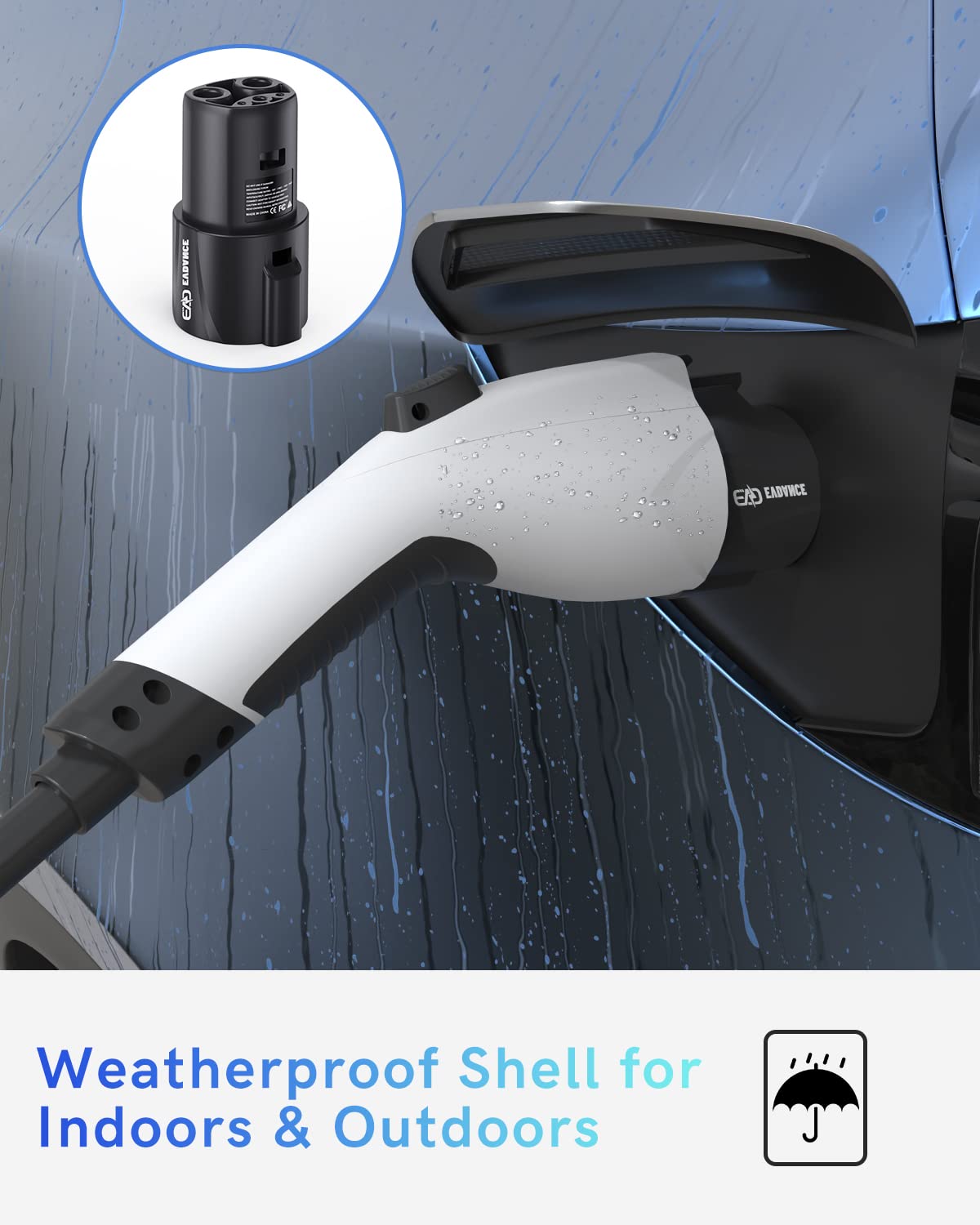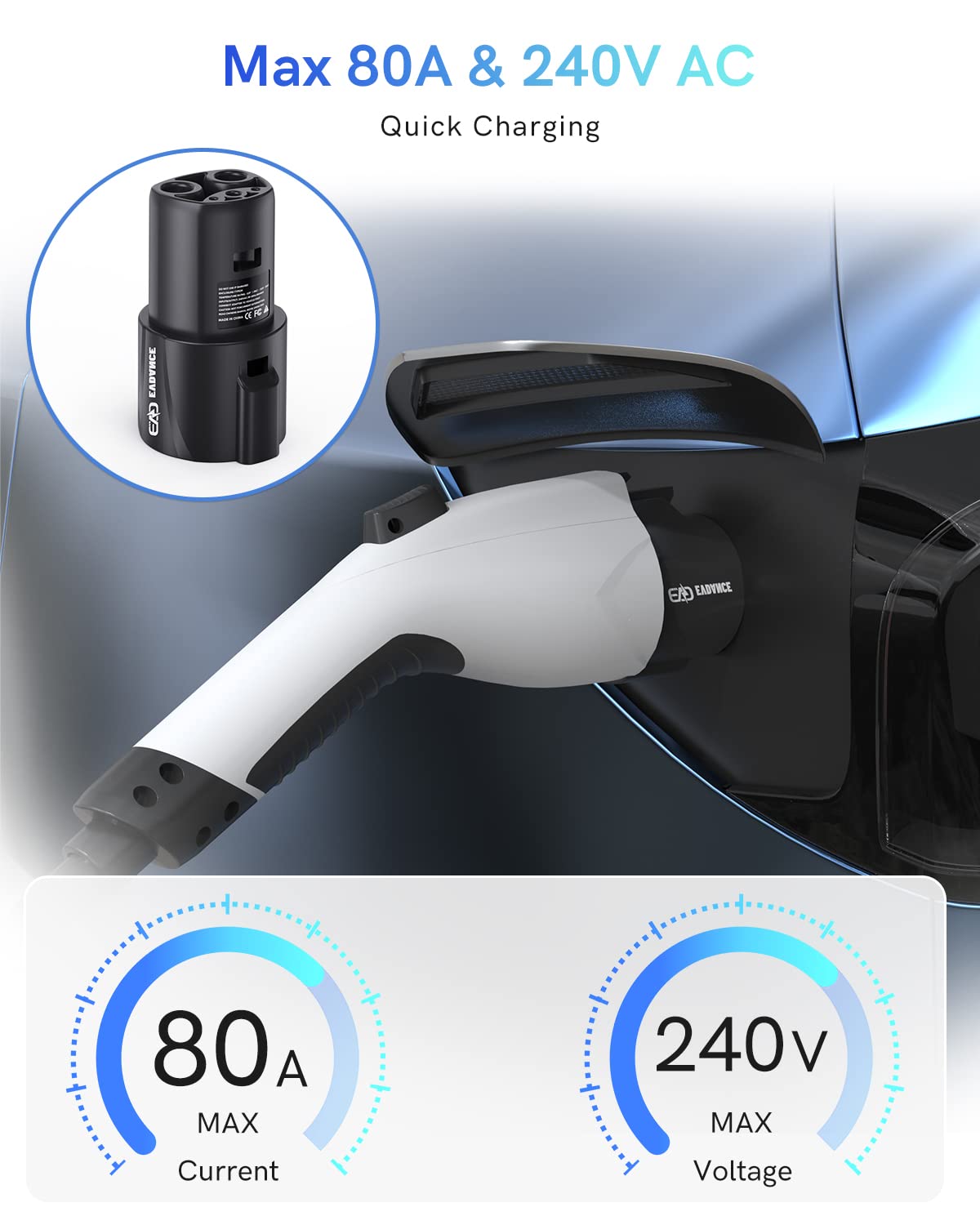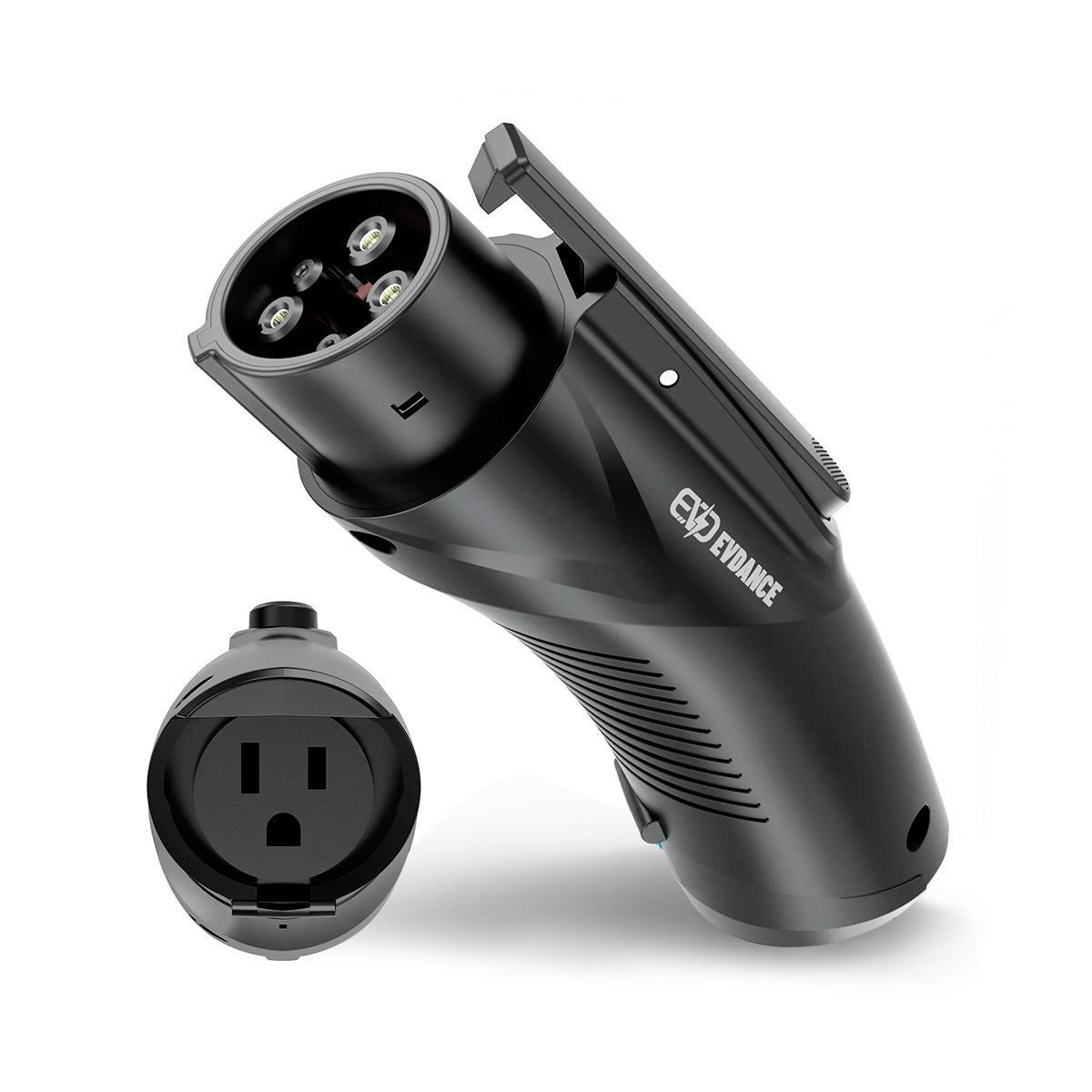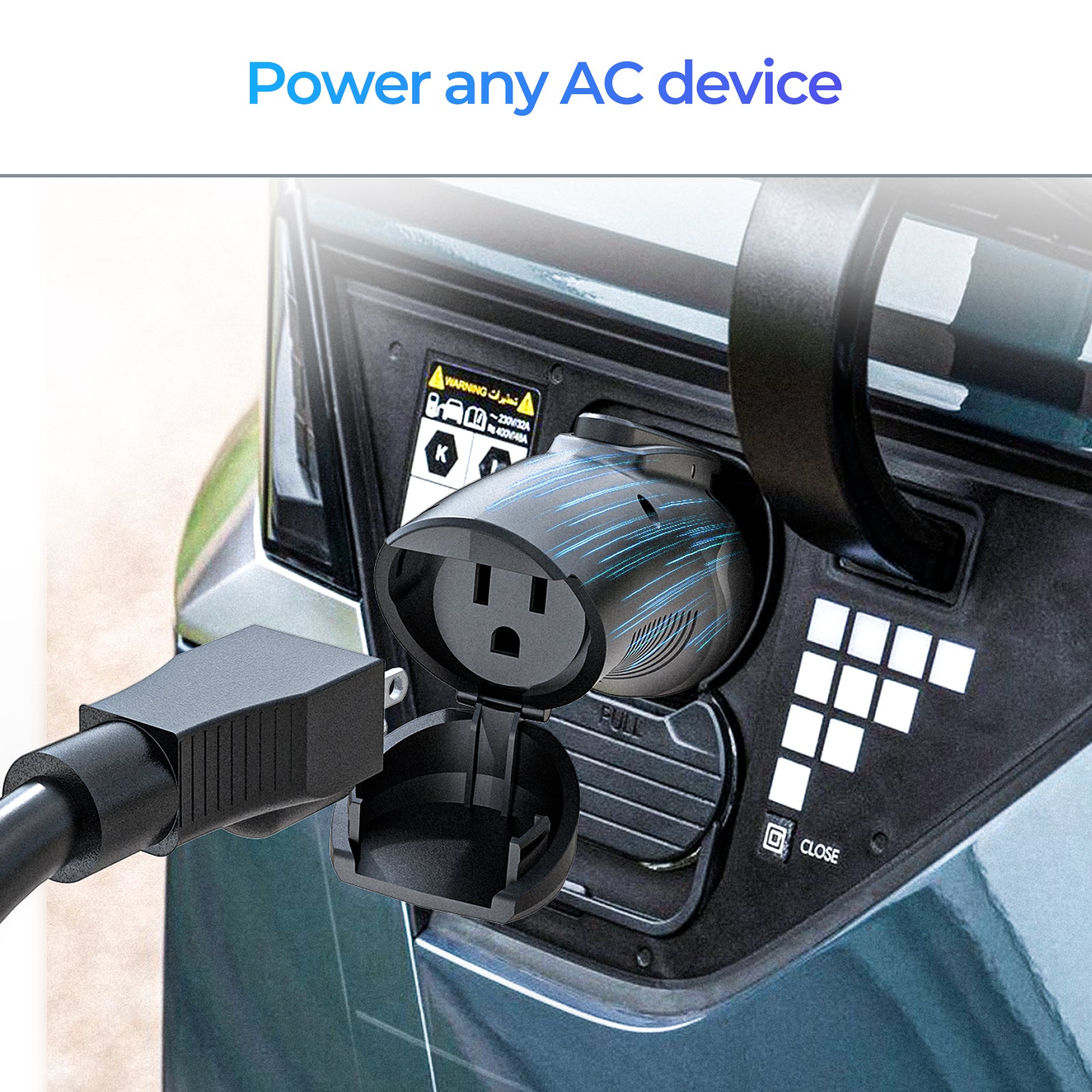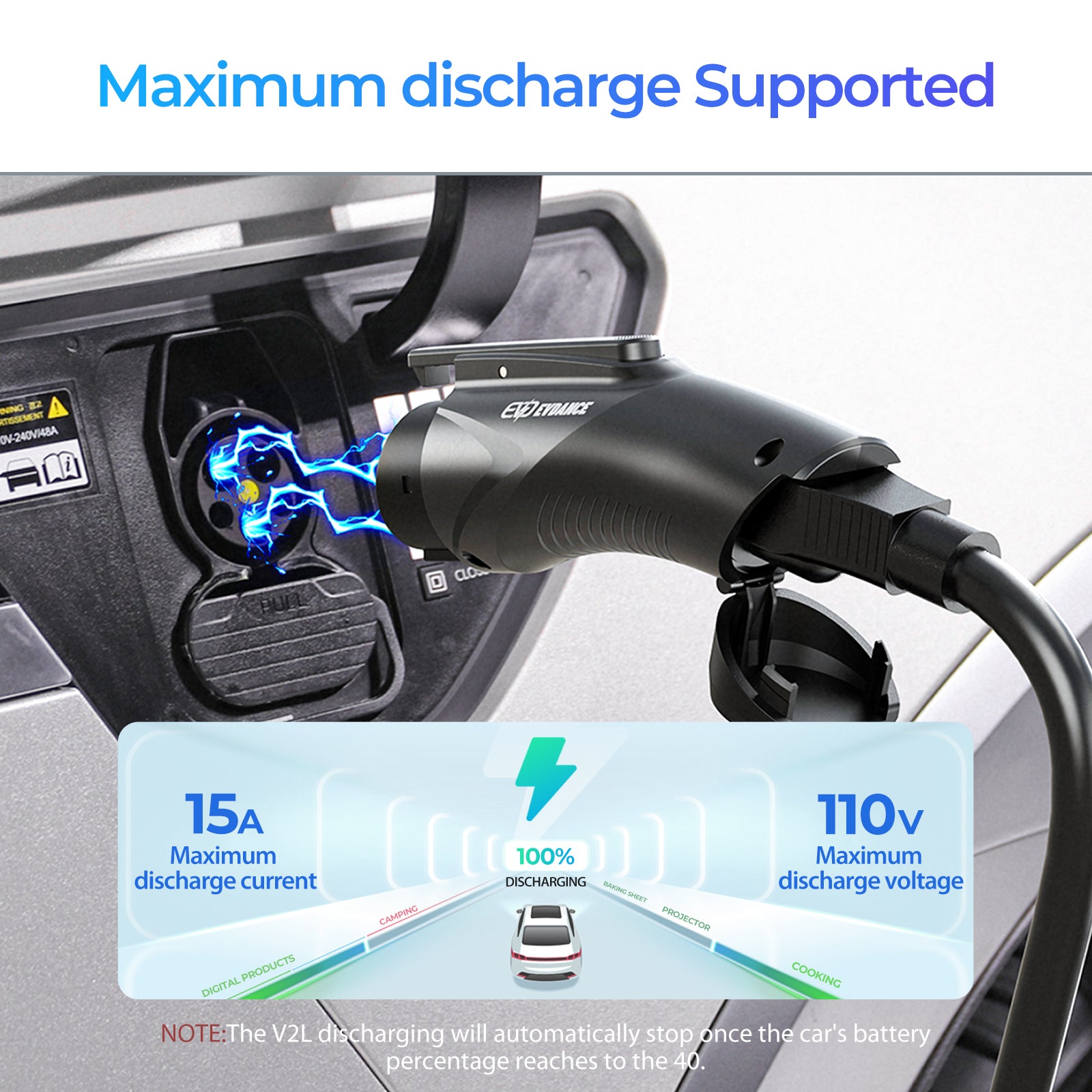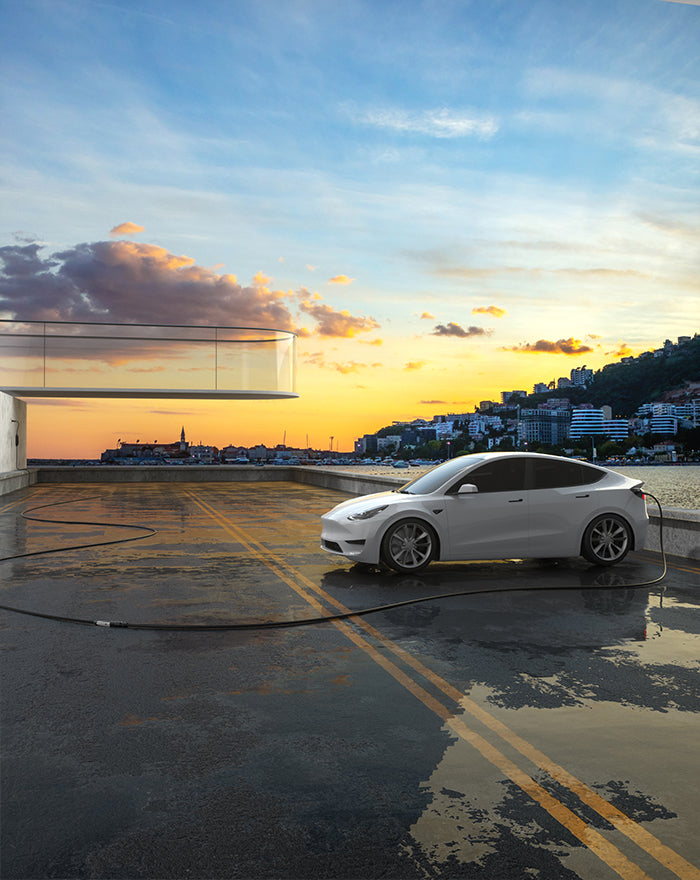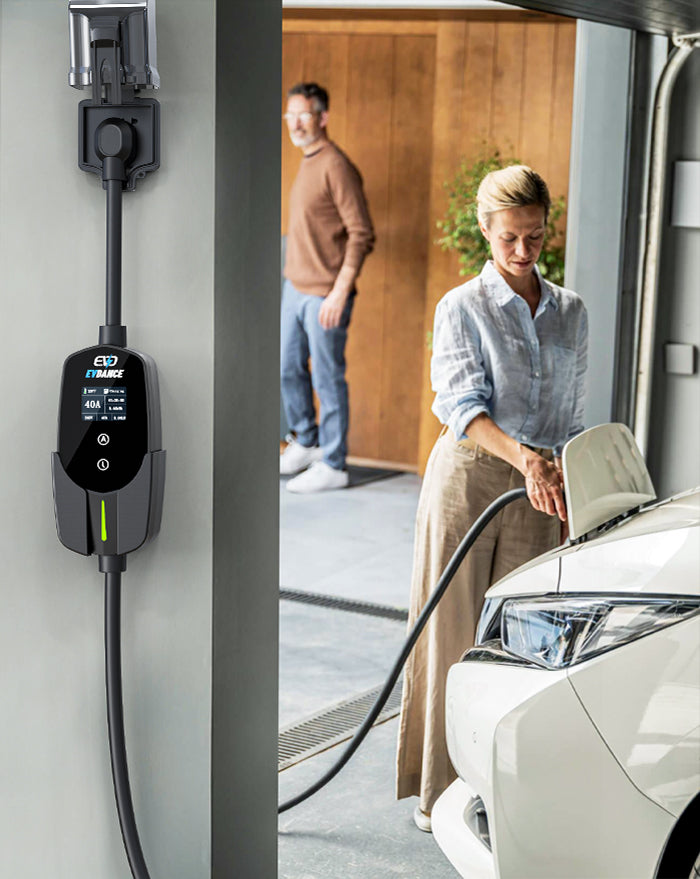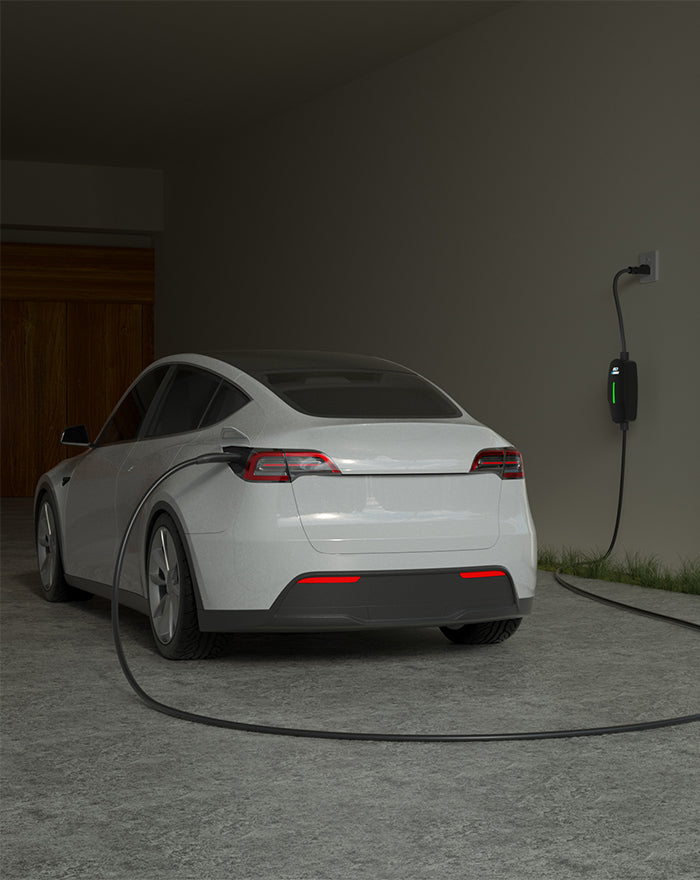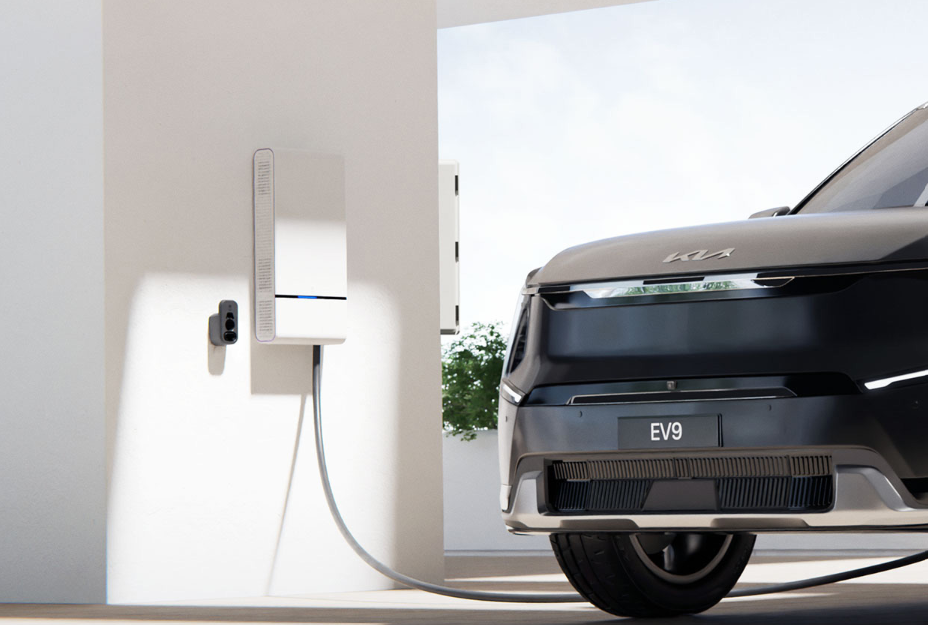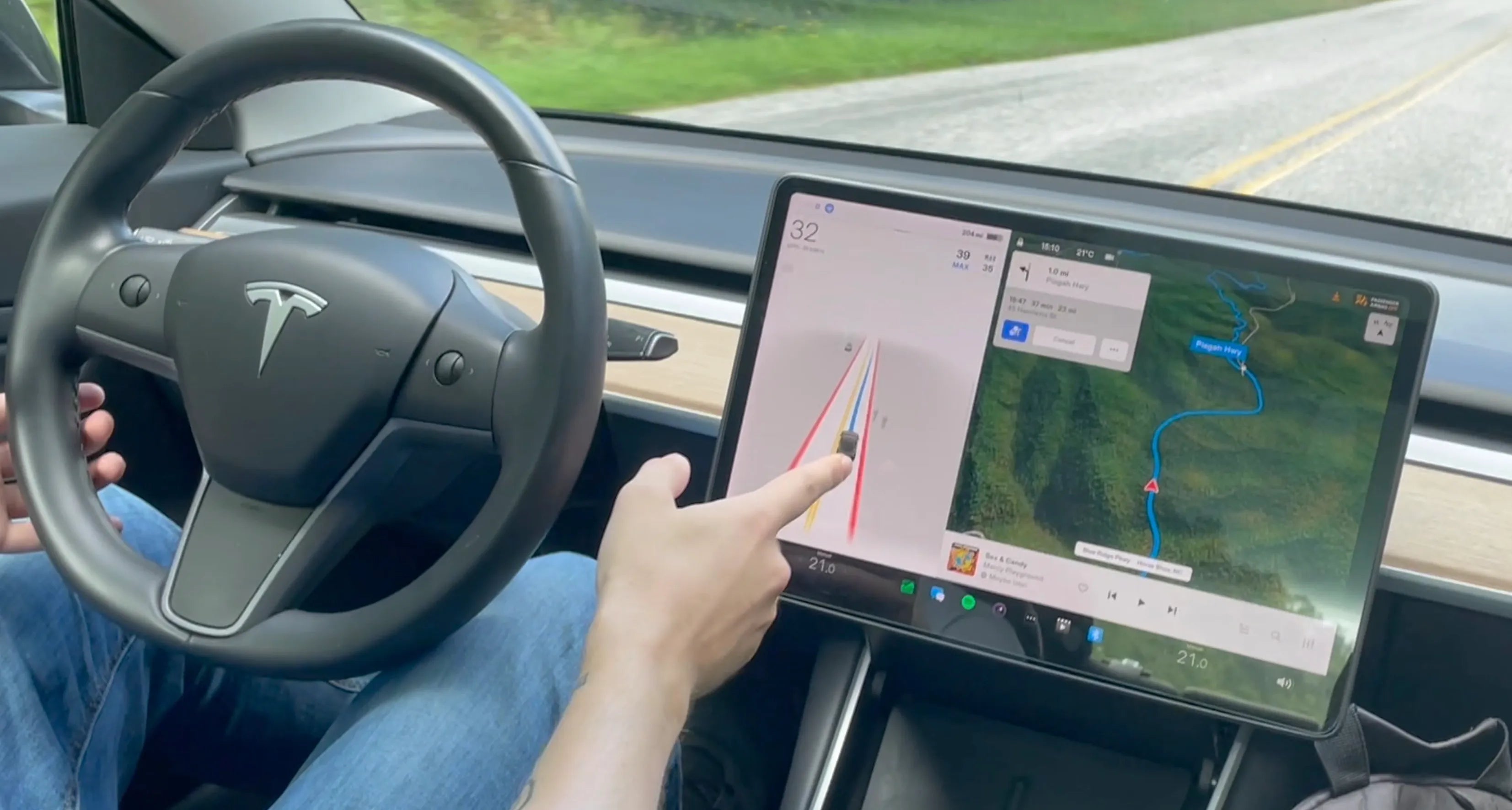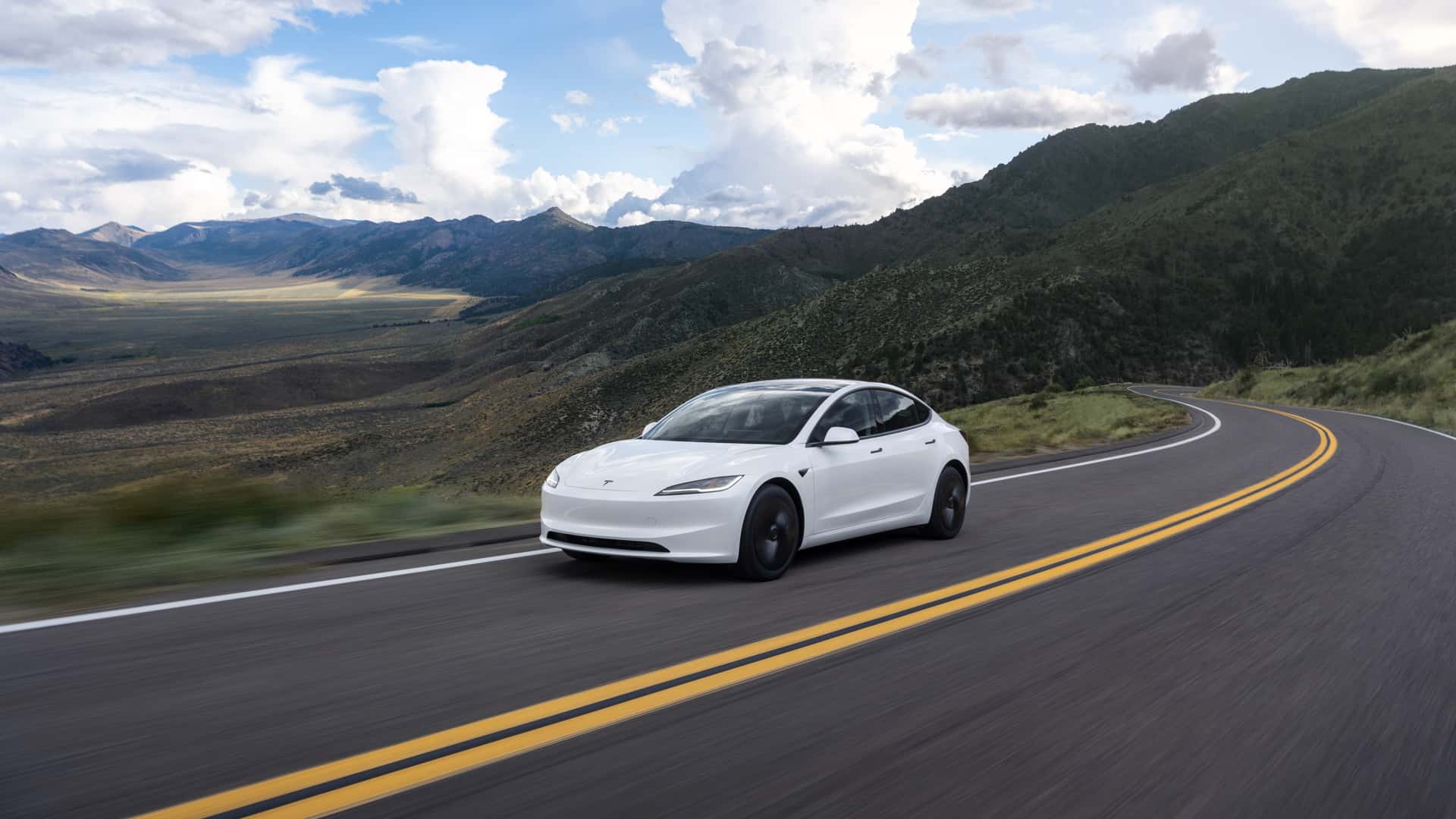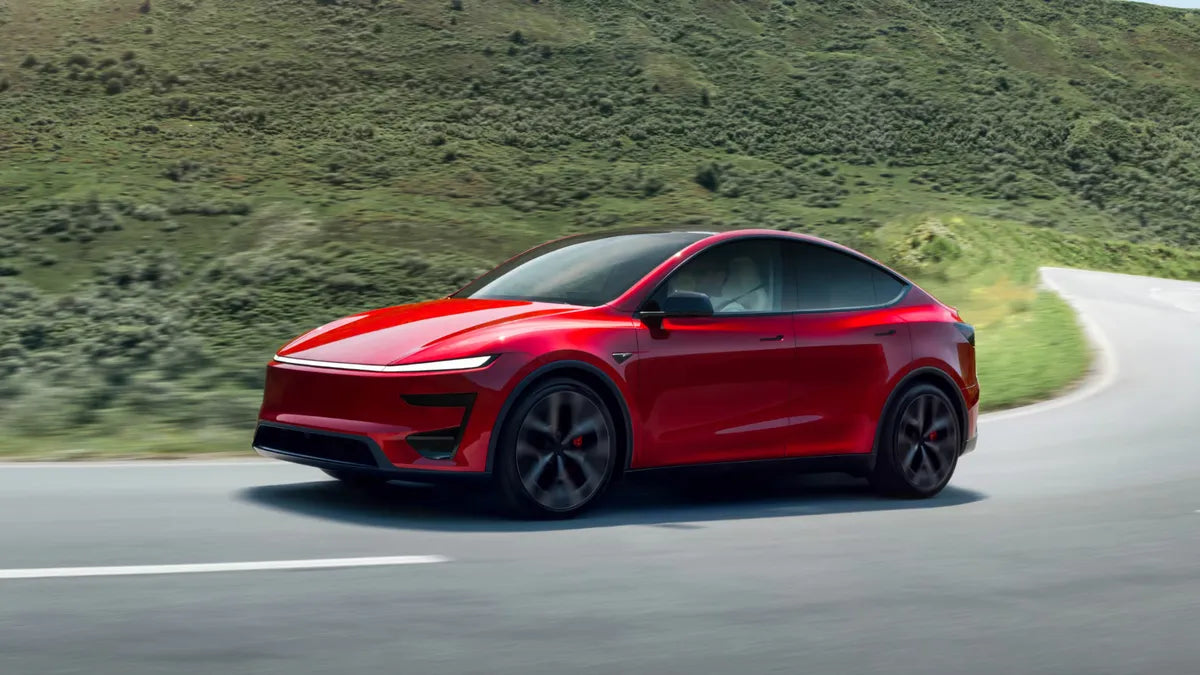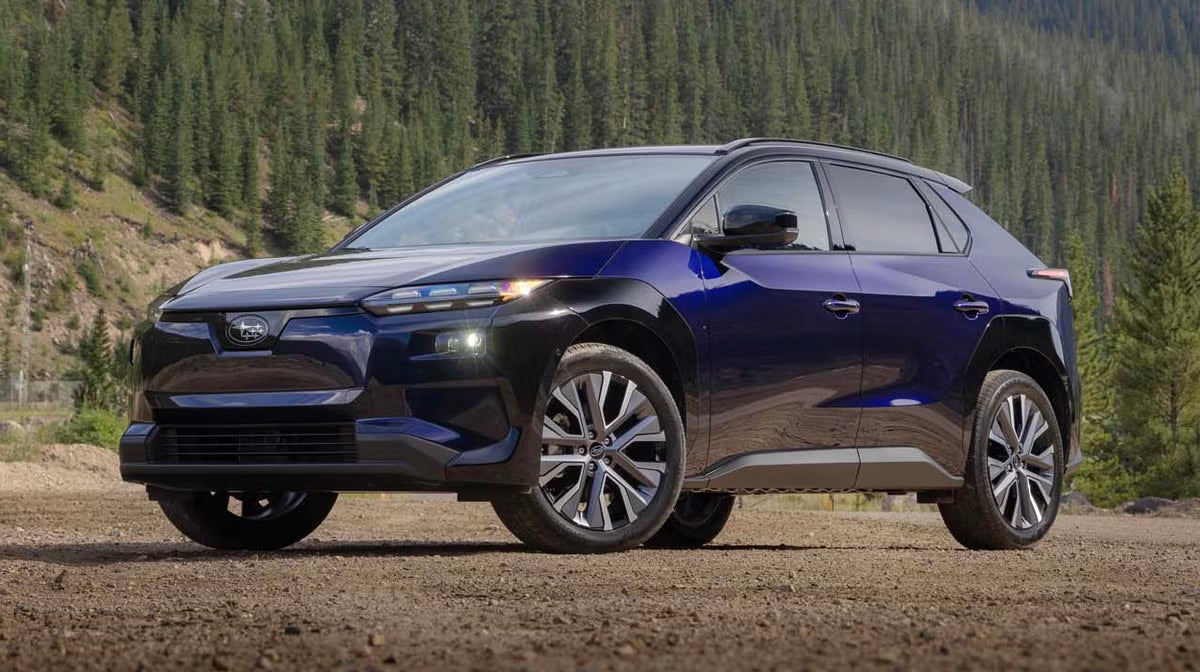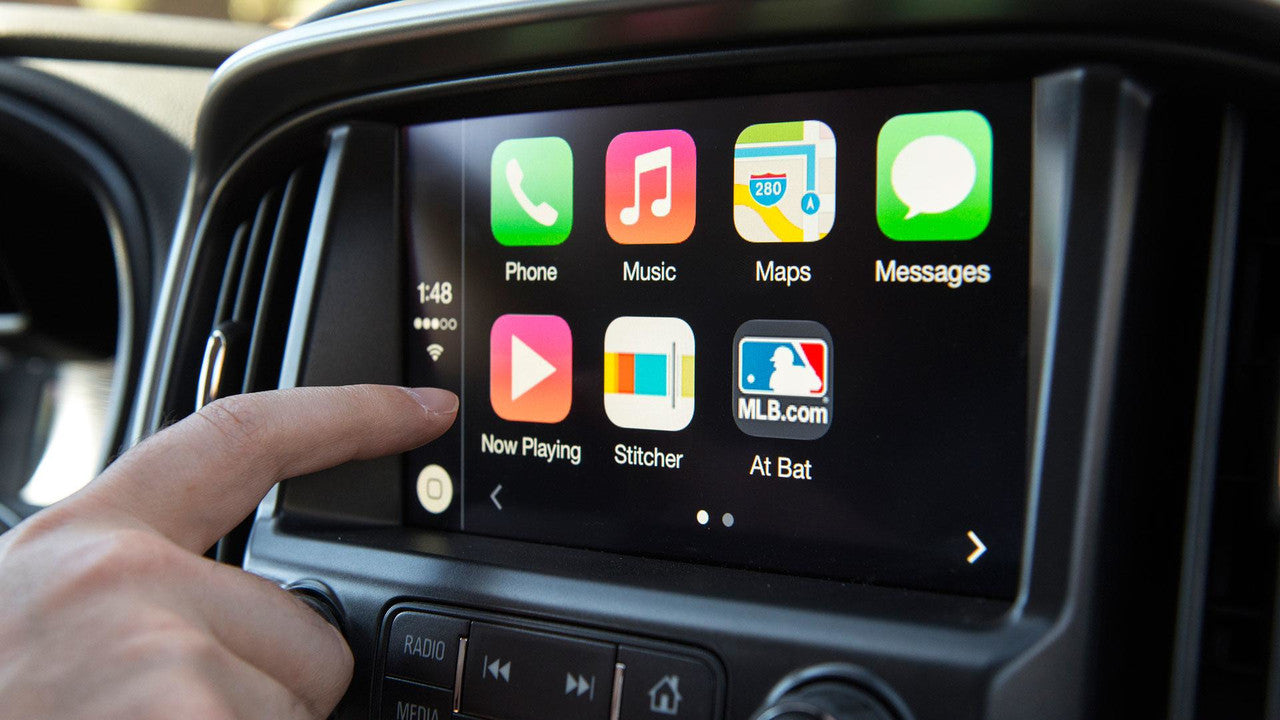AS SEEN ON
RECOMMENDED BY

Kim Java
If you go to a friend's house and their car is blocking the charger or the charger is in an awkward spot, or you're travelling just can't quite reach the charger, you can use the extra length that you need.

Robert Rosenfeld
Perfect solution for charging multiple cars without the hassle! Durable, reliable, and makes outdoor charging effortless. Exactly what I needed!

Walter Schulze
When you’re on a roadtrip going to a hotel that has an EV charger, the PlugShare says it's available and working, and when you get there it is ICEd. That's where EVDANCE Extension Cord comes into play.
EV Compatibility
Best Sellers
EVDANCE Pulse Fusion NACS DC To CCS1 Adapter
EVDANCE Tesla(NACS) to J1772 Charging Adapter with Security Lock
EVDANCE Mini Tesla(NACS) to J1772 Charging Adapter Max 80 Amp & 250V
EVDANCE CCS1 To NACS Adapter 250KW
EVDANCE SAE J1772 to Tesla Charging Adapter 80 Amp/ 240V
EVDANCE V2L Adapter for Hyundai Ioniq 5 & Ioniq 6,Kia EV6 15 Amp
EVDANCE
Charging Everywhere, Anytime
At home, on the road, or off the beaten path, our EV chargers, extension cords, and adapters ensure your electric vehicle stays powered in any situation.
Customer Support
Monday - Friday
24/7 Customer Support
1-Year Warranty
EVDANCE Covers A Period Of 12 Months From The Date Of Purchase.
Fast Free Shipping
Fast Free US & DE & CA Shipping 48 - 72 Hours
Secure Payment
On EVDANCE Your Payment Information Is Processed Securely
FAQ
What types of EV chargers are available and which one is right for me?
There are mainly three types of EV chargers: Level 1, Level 2, and DC Fast Chargers. Level 1 chargers use a standard household outlet and are best for overnight charging at home. Level 2 chargers require a 240V outlet and charge faster, making them suitable for both home and public use. DC Fast Chargers provide rapid charging and are commonly found in public charging stations.
How long does it take to charge an electric vehicle?
Charging time varies based on the charger type and the vehicle's battery capacity. Level 1 chargers can take 8-20 hours to fully charge, Level 2 chargers can take 4-8 hours, and DC Fast Chargers can charge up to 80% in 20-40 minutes.
What are the costs associated with installing an EV charger at home?
The cost of installing an EV charger at home depends on the type of charger, installation complexity, and local labor rates. Level 1 chargers generally cost less since they can use existing outlets, while Level 2 chargers may require electrical upgrades and can cost between $500 to $2,000 including installation. Incentives and rebates might be available to offset these costs.
Are there incentives or rebates for installing EV chargers?
Yes, many regions offer incentives and rebates for installing EV chargers. These can come from federal, state, or local governments, as well as utility companies. Incentives may cover part of the installation costs, provide tax credits, or offer rebates on the purchase of the charger. It's advisable to check local resources for specific programs available in your area.
What is the difference between a connector and a charger?
A connector refers to the physical plug that connects the EV to the charging station, while a charger is the entire system that delivers electricity to the EV. There are different connector types depending on the region and the charging standard, such as Type 1 (J1772) in North America, Type 2 (Mennekes) in Europe, and CHAdeMO or CCS for fast charging.
How do I apply for tax credits to offset my EV charger installation costs?
Want to learn how to claim a tax credit to offset the cost of installing an electric vehicle charger? See here. 2024 EV Tax Credit: The Best Way to Save on Your EV
Not Found Your Qustions?
Go to our QA Question Bank for more answers!
EV NEWS
Stay current with the latest breakthroughs, sales trends, policy updates, and industry shifts shaping the future of electric mobility. From EV startups to legacy automakers, this section delivers timely insights into the rapidly evolving world of electric vehicles—covering tech innovations, market performance, charging infrastructure, and more.
Kia Tops Study as the EV Brand With the Most Durable Batteries
A new study of 1,300 used EVs found Kia’s EV6 and e-Niro have the slowest battery degradation, with most models keeping over 90% capacity. Experts say usage and climate matter more than brand, proving modern EVs last far longer than skeptics believed.
Tesla Claims Autopilot Keeps Improving — But the Data Shows More Crashes
Tesla says its Autopilot system continues to improve, but new data tells another story. The company’s Q3 2025 report shows crashes now occur every 6.36 million miles—marking the third consecutive drop in safety since early 2024.
Tesla Recalls Nearly 13,000 EVs in the U.S. Over Sudden Power Loss Risk
Tesla is recalling nearly 13,000 Model Y and Model 3 vehicles built in 2025 due to a faulty solenoid that can cause sudden power loss. While no accidents have been reported, Tesla will replace the affected battery contactors for free, ensuring safer operation.
America’s 10 Best-Selling EVs of 2025 (So Far)
U.S. EV sales surged in 2025’s third quarter, driven by buyers rushing to claim the expiring $7,500 tax credit. Over one million EVs have been sold so far this year, led by the Tesla Model Y, Model 3, and Chevrolet Equinox EV among America’s top sellers.
Toyota bZ and Subaru Solterra Join Tesla Supercharger Network
The 2026 Toyota bZ and Subaru Solterra now support Tesla Superchargers across North America with built-in NACS ports. New models feature Plug & Charge for seamless billing, while older models will need adapters to access Tesla’s growing fast-charging network.
GM to Phase Out Apple CarPlay and Android Auto Across All Models
General Motors will remove Apple CarPlay and Android Auto from all future models to focus on its Android Automotive system, aiming for a smoother, unified in-car experience despite concerns from longtime smartphone users.




